Week 224: Power surge
It's a crazy week as we tear things apart and start to build them back together again. The point of no return is passed. We're into this project at full speed.
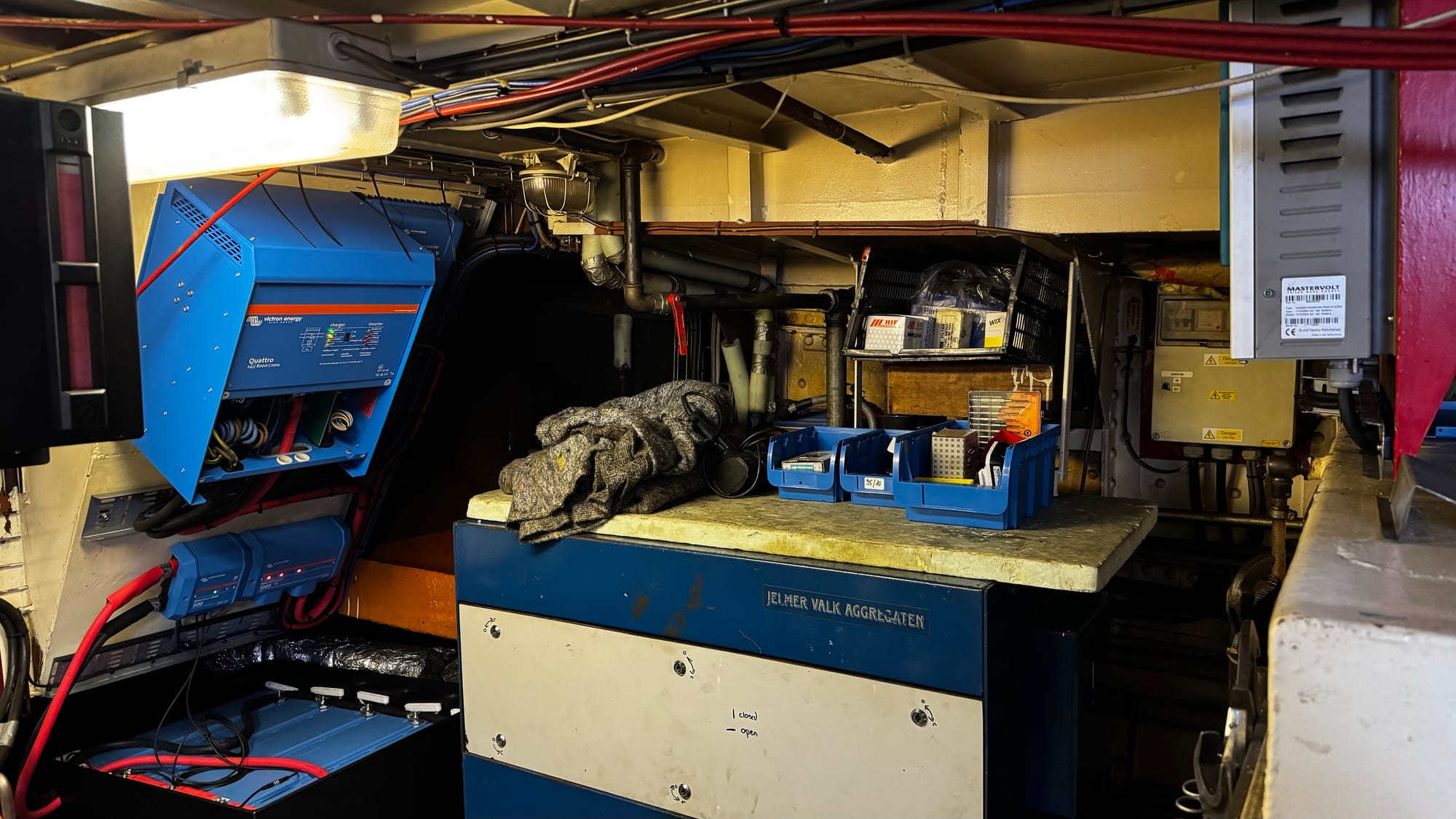
This project is all-consuming—mostly in a good way. But occasionally, there are days when you look back and think, "What on earth just happened?" This week was full of those occasional days. For the most part, things have been going along steadily and consistently. Most of what we've personally been doing (fixing windows, planning with the architects, going into dry dock) has been positive for Delfine, and if we wanted to put the brakes on and stop, we could.
Yes, dry docking and painting were significant expenses. But it's done. Delfine is leak-free, survey valid for several years, and looking very pretty. If we'd abandoned the project on Monday, we would have had a perfectly good boat with no structural issues on which to live.
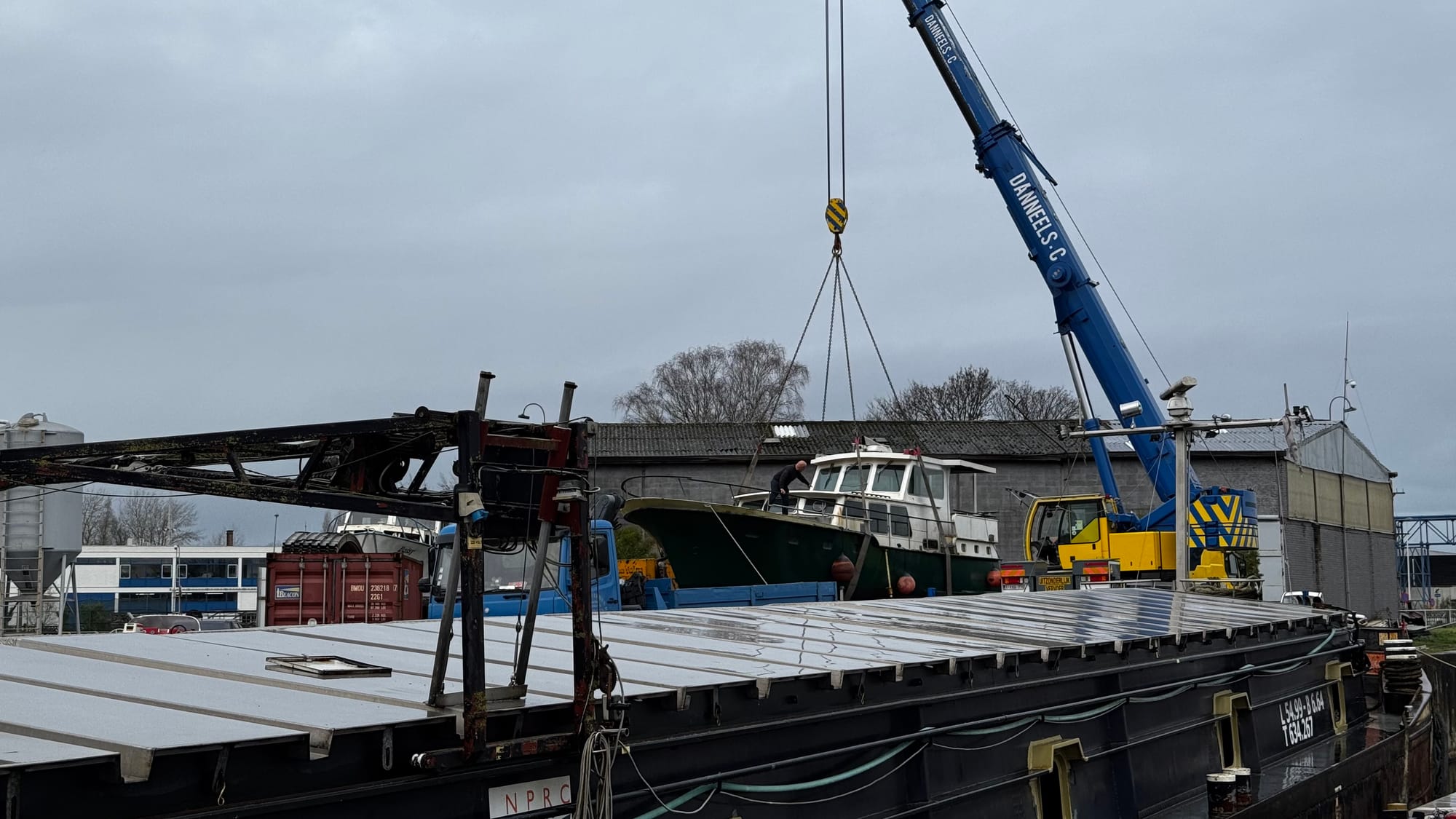
That's why demolishing the bathrooms felt like a big step. It's a point of no return. We demolished one bathroom and started on the others, half the kitchen, the living room, and the stern cabin, and pulled the floors in the front section of the boat. There's no going back now. We can't just "stop" and change our minds. Delfine will be remodelled. There is no choice anymore.
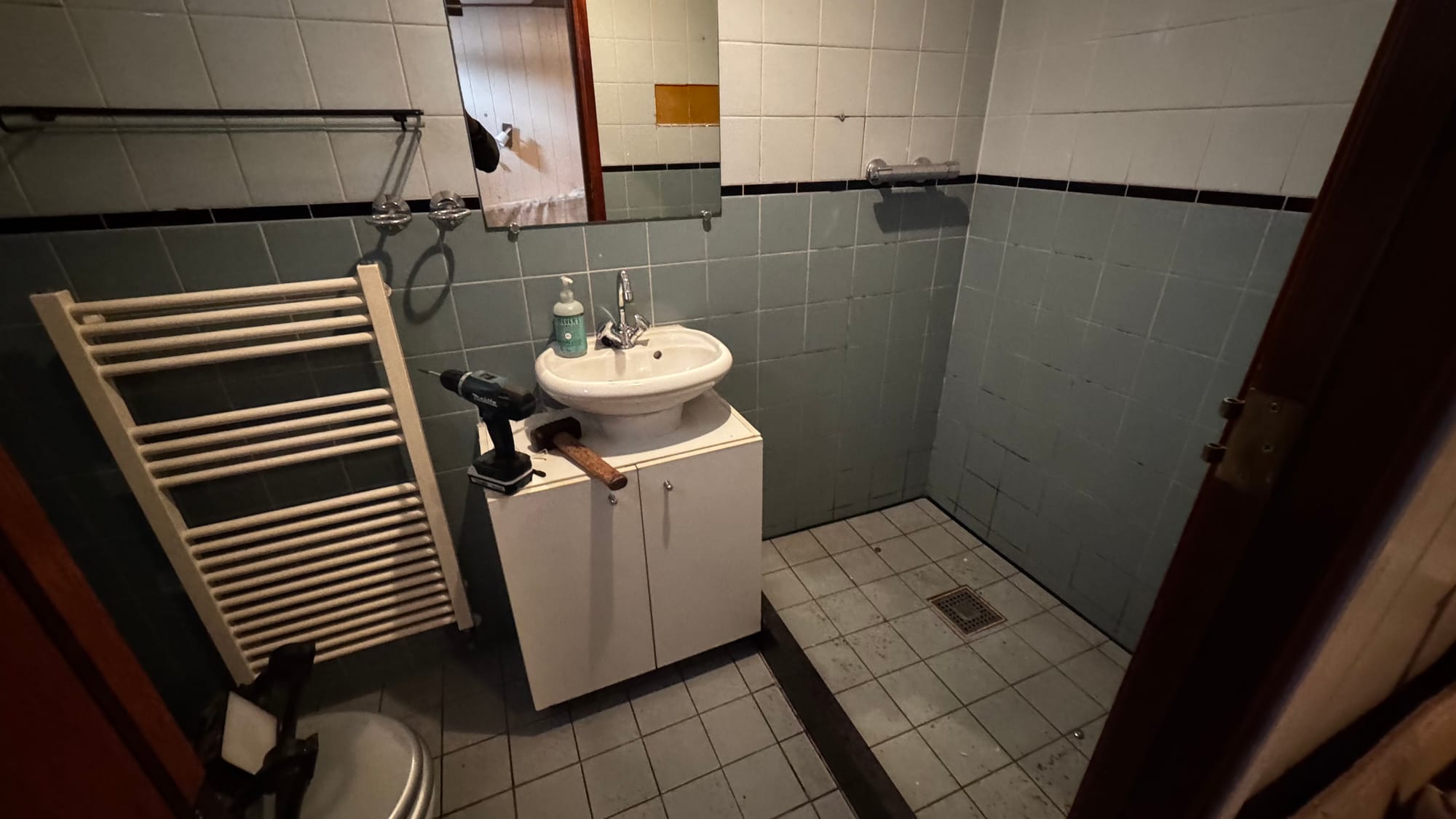
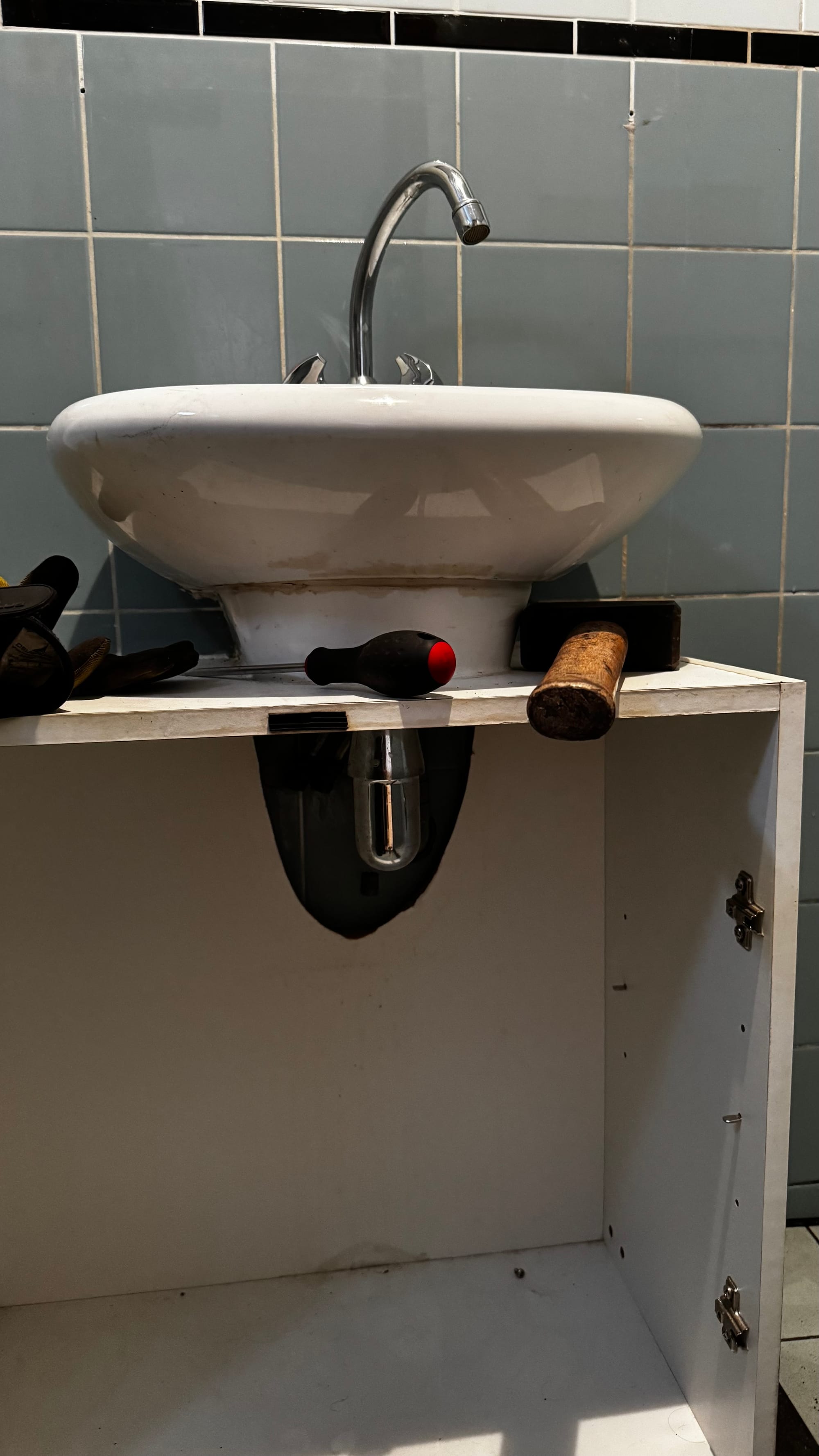
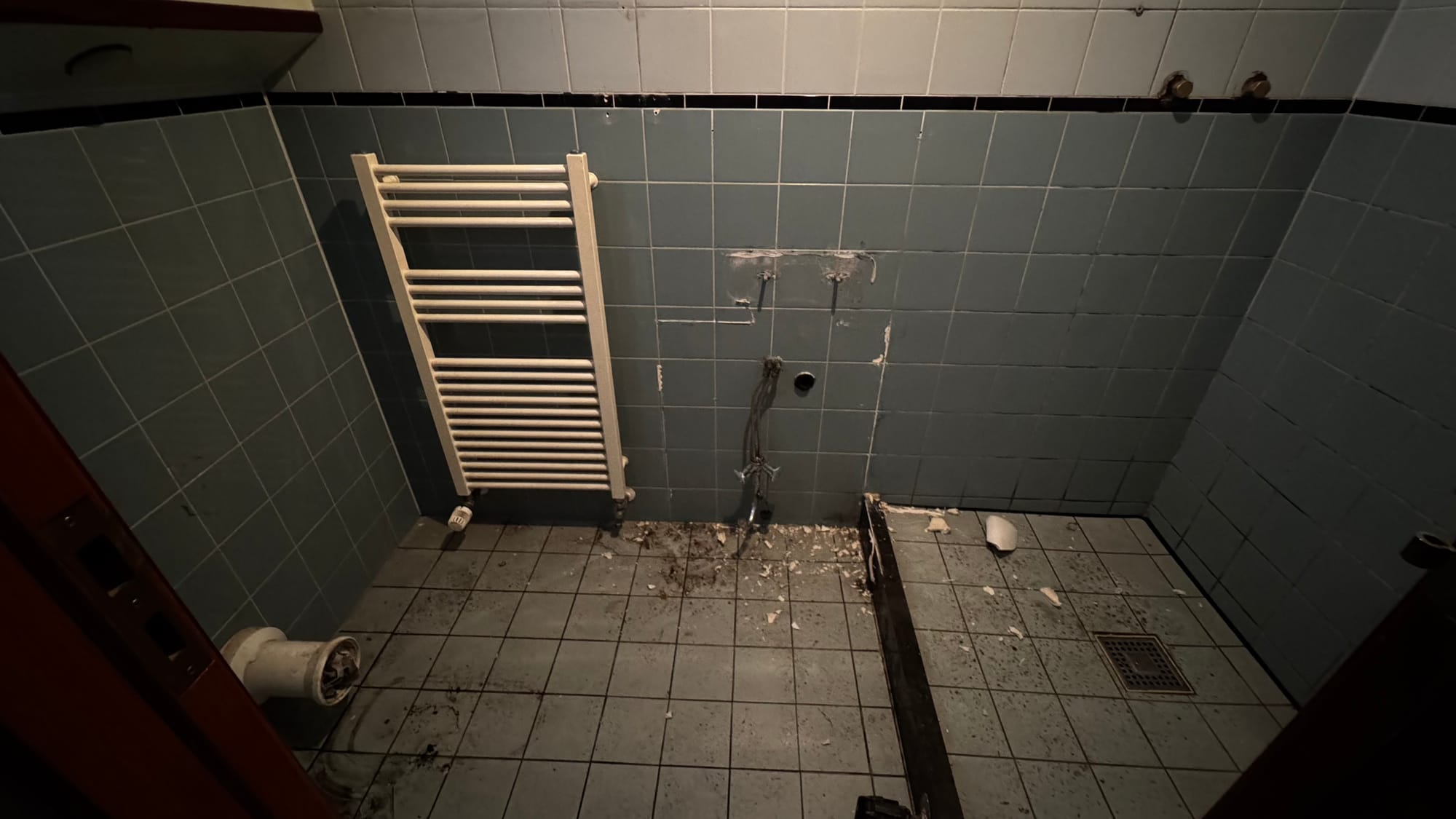
Goodbye bathroom
I often get comments about how "good" we are at maintaining the blog. The trick is it doesn't feel like an effort. At "worst", it's a journal of what we did, one we're happy to share with family and friends and something we refer back to over the years. But more frequently, it's pretty cathartic and a good reflection on what's been happening. On Matilda, it might be a chance to reflect on a disaster or storm. Think about what we could do differently or better. With Delfine, it's realising moments like this.
I knew this week was hard. I felt it! But it was not until I wrote it just now that part of it gelled for me. We're now past the point where we can hop off the ride and walk away with an intact boat. Delfine is also now at her lowest market value, less than what we paid for her. Scary stuff.

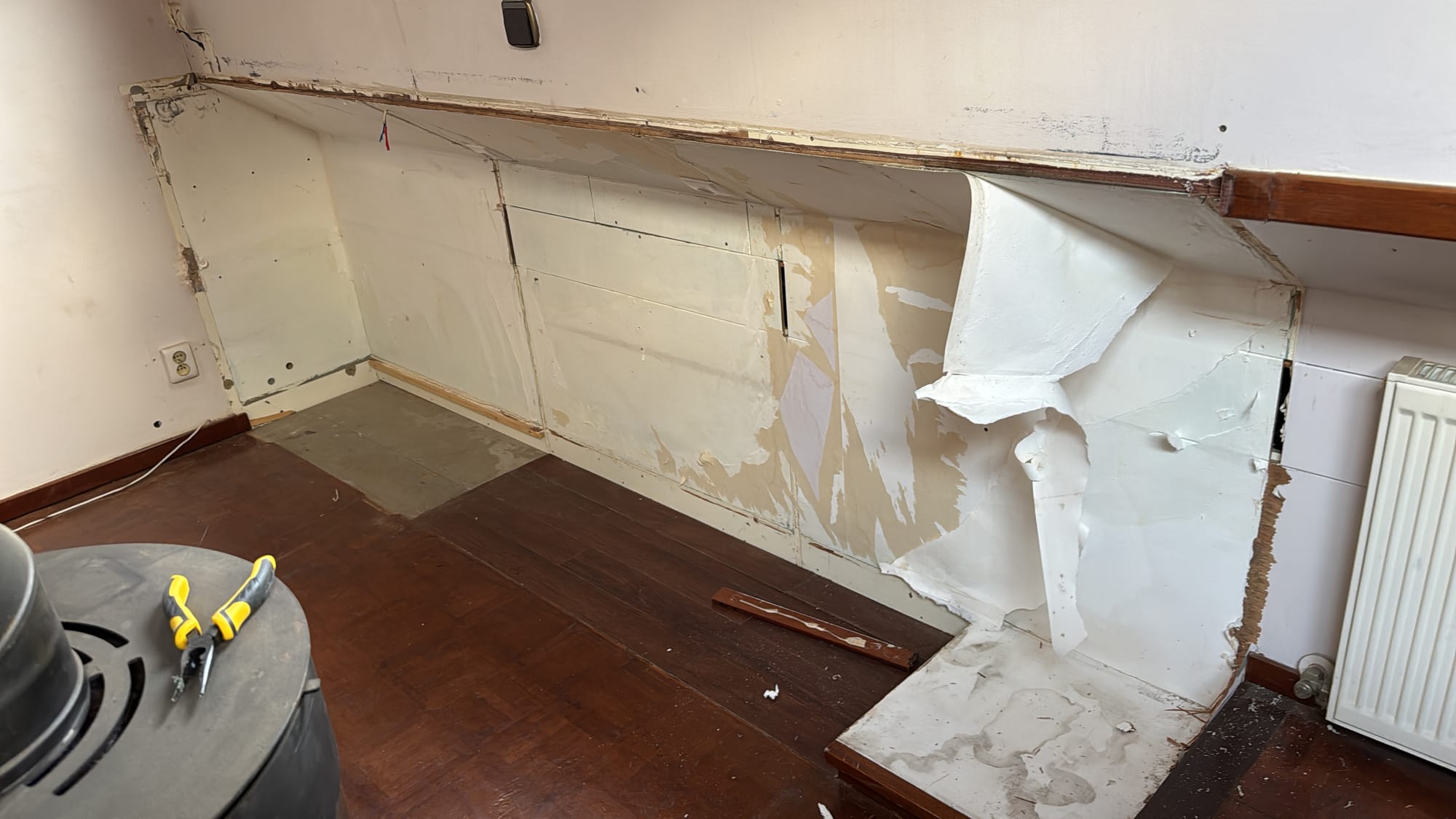
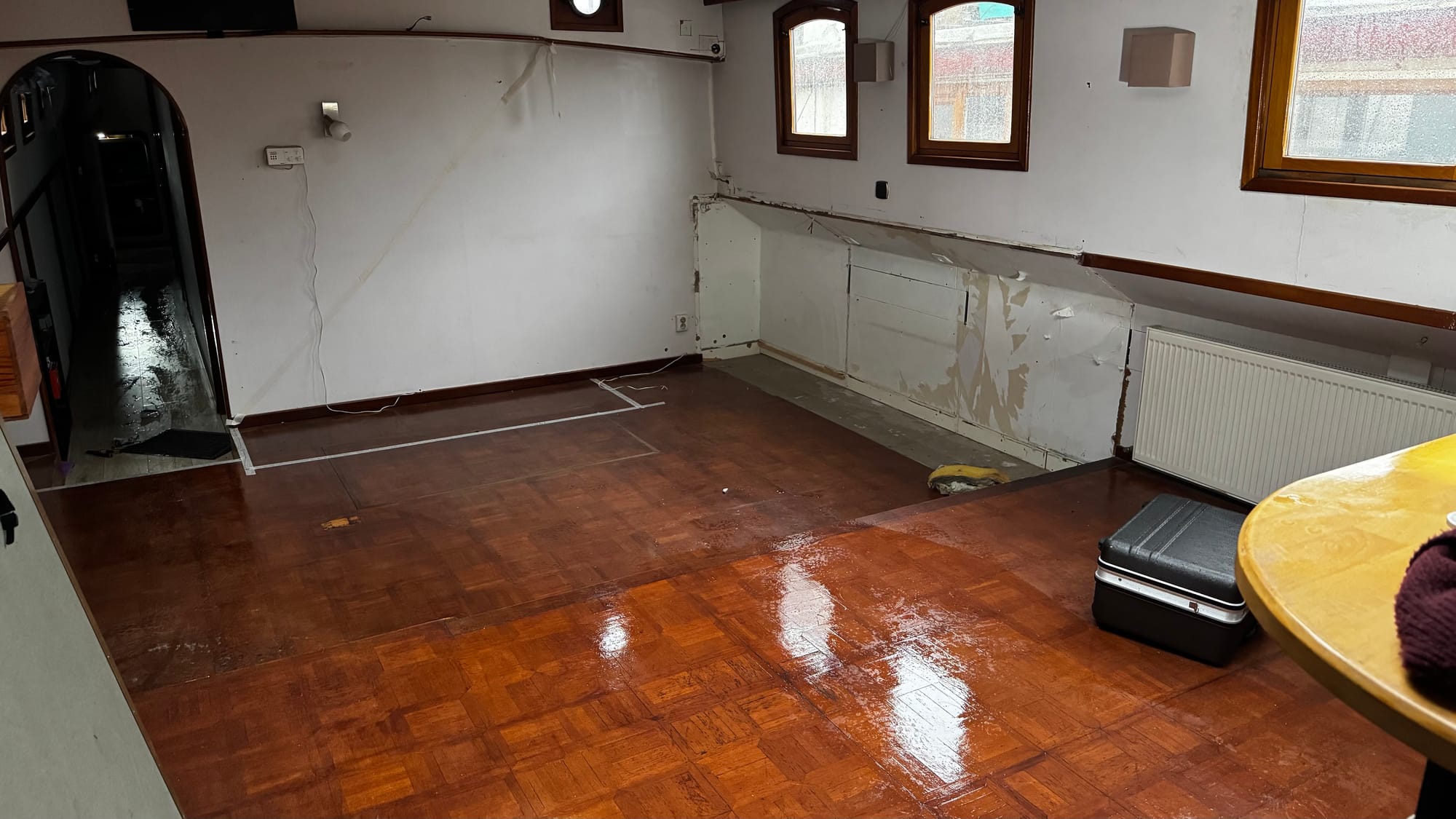
The "library" in the living room is gone. Sad as it was quality work, but we have big plans for improvements here.
Not to be all dramatic. For the most part, I was excited. As Karina said, it's like having your own rage room. I love solving technical puzzles, and demolishing is frequently a puzzle. "They must have screwed this in, but it's all smooth. Oh, they capped this off with plugs, sanded and varnished it to match. Hmm... okay, let's drill that out. Yup, there's the screw. Undo it... Oh, there's a lot of silicon. Right, Multi-tool, run that down the side... twist it... there we go. Okay, now that the facing is off, how did they fix it to the wall?"
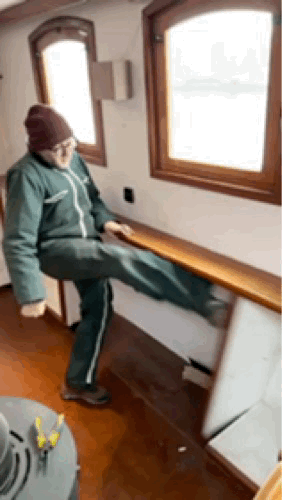
There's a satisfaction in pulling something apart elegantly. Until you can't figure it out, so the sledgehammer or the boot comes out. I laughed at a friend's comment on Facebook this week. "Are you sure that's not a structural wall?" To which I responded, "Well, it's not anymore."
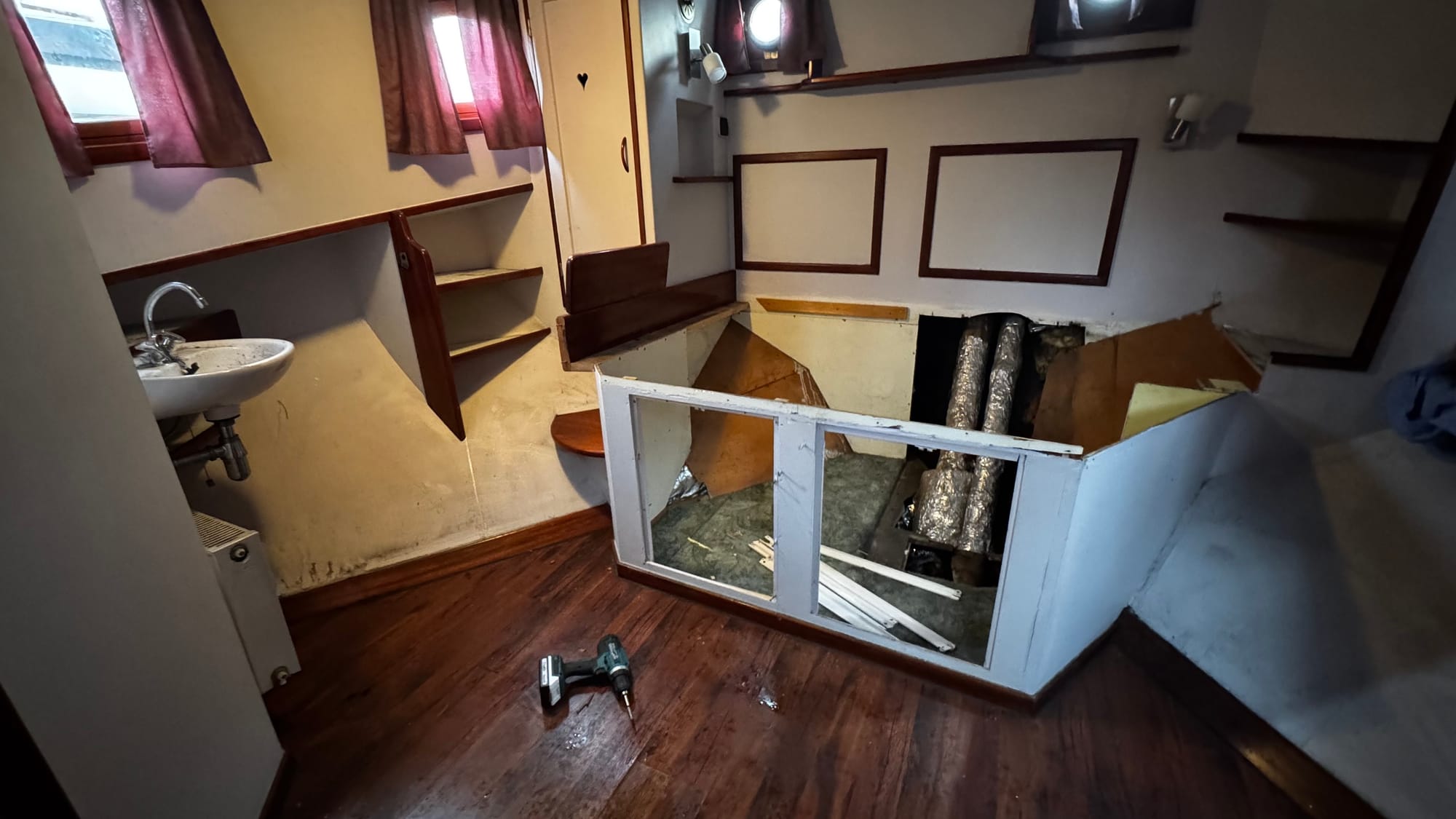
Bed coming out.
The hardest part of most jobs is not that I can't figure things out. It's that I rarely have the right tools and parts on hand! Remove the sink? Yeah, I need a 3/8" cap for that thread on the end of the pipe. And a 1/2" one for the radiator. And a 3/4" one for the shower taps. Oh, and the 3/8" – male, not female. (Side note: Yes, for some reason, all the pipe fittings here are imperial). It leads to endless trips to the hardware store, searching for the parts you need. This is a time-suck in itself; there's rarely anyone to ask, and finding things takes forever. Gradually, by the end of the week, things go faster as you accumulate what you need. Or find the right store.
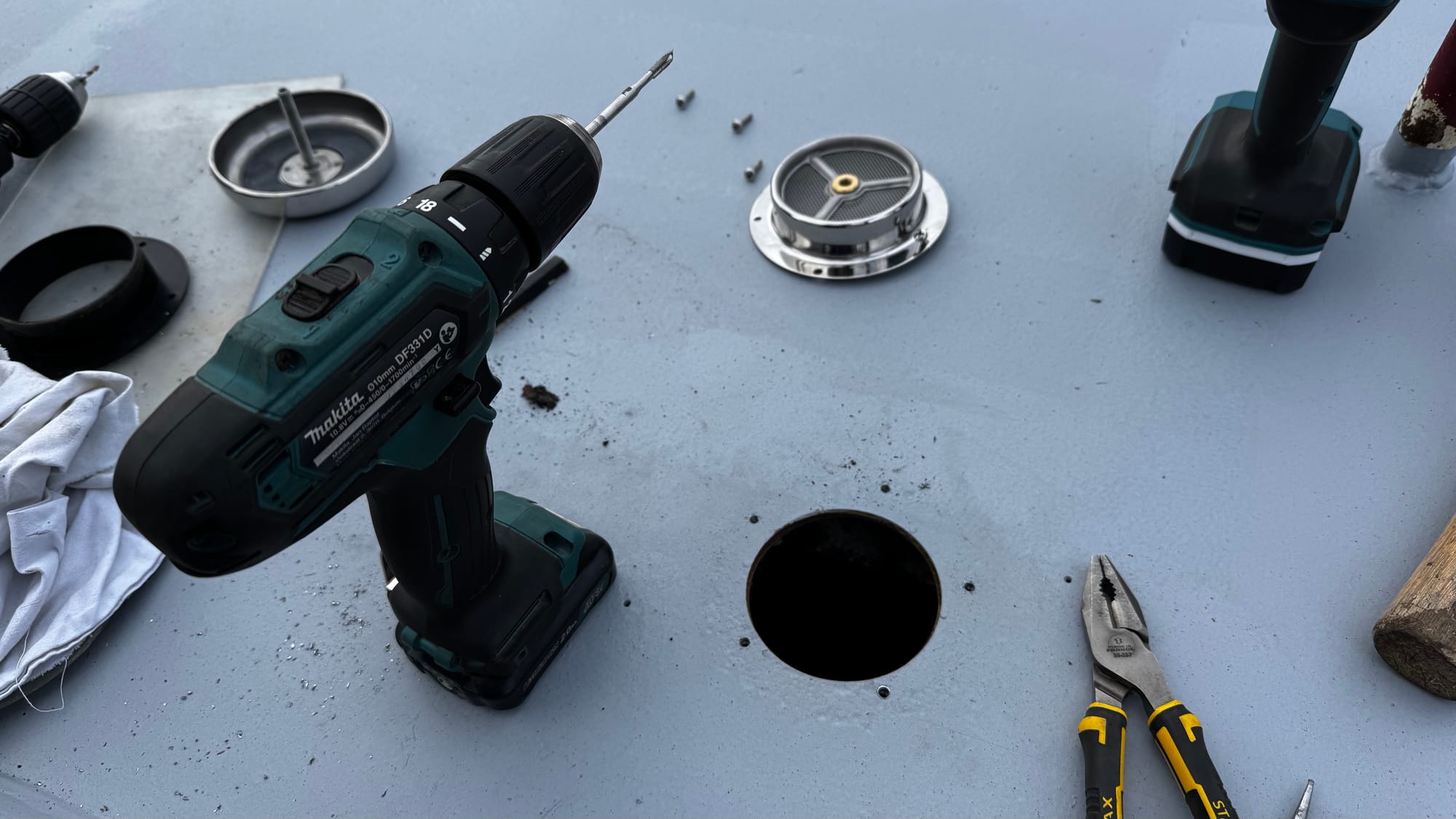
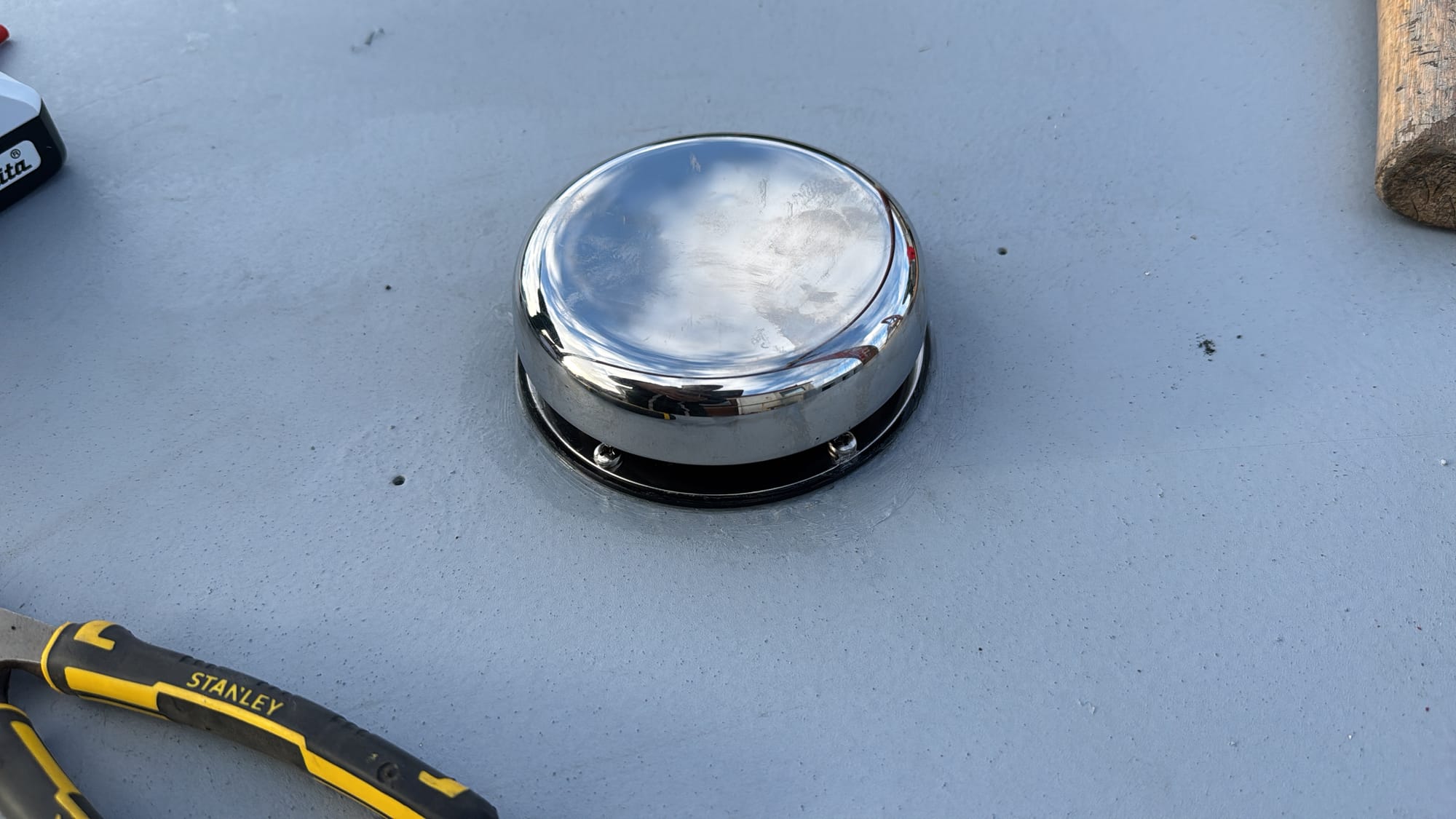
One project this week was fitting new ventilators. Unlike the hardware store visits, this was a dream. Martin is a walking hardware store with everything I needed to borrow to do the job correctly, including tapping threads into the roof. I need to buy more tools!
Anyway, the reason for the demolition starting was that the builders were on site on Wednesday, along with the architects, to start measuring the fit out–which meant everything had to go.
Martin, from Elektro-Zeeland, arrived on Tuesday, and started gutting the electrical system. We're making big upgrades to the power system on the boat, replacing a 30-year-old 3000W inverter with a new 8000W inverter and lithium battery system. I've been very impressed with how Martin goes about his work. He's ensuring everything on Delfine is up to spec and ready to support the new power system. This has meant (for example) replacing all the shore power inputs, the cables that run from the 240v panel to the inverter and rearranging the way the batteries are set up. He always thinks about future serviceability, and we frequently discuss how and where equipment should go. Sometimes, there's no "best" solution–but the right solution is the one that can be maintained in the future (aka, putting it there LOOKS better, BUT, if we do that, you'll never be able to remove the batteries again to replace them without pulling it apart).
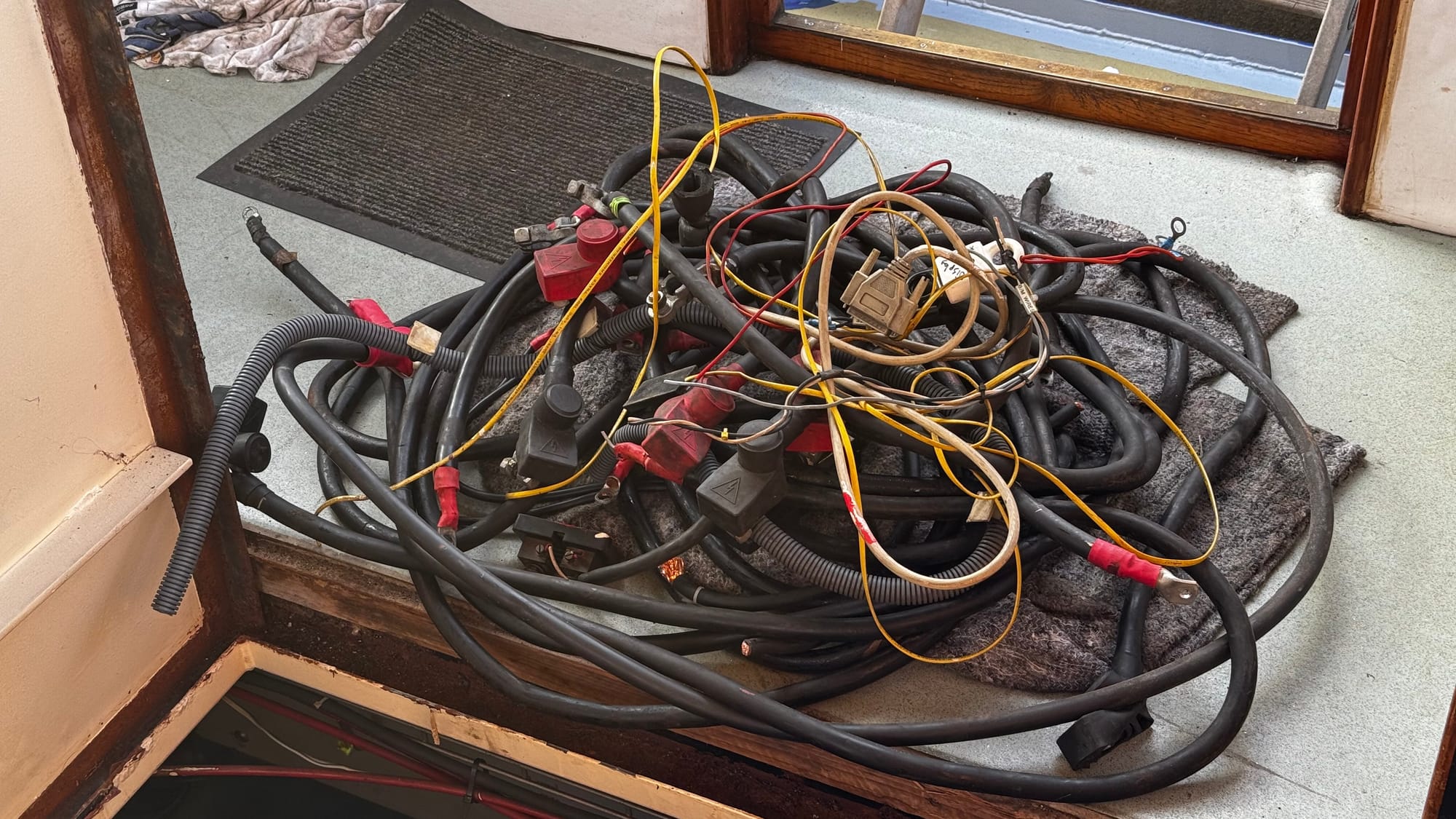
Early in the week, we moved Delfine from where she was lying next to one of the bigger boats waiting for work and slid back in alongside the quay. This was a significant milestone because it let us offload all the demolition materials from the boat and let Martin get to work. Nothing is easy, though! As Martin started to work, moving things back and forth into the engine room, the weather cleared enough for the next coat of primer to go on the decks of Delfine. Now we have Martin working, moving batteries and equipment on and off the boat, us trying to unload rubbish to put aside for a skip and the team painting. Ultimately, they painted everywhere but a 1M x 1M square outside the door, which we popped a ladder on to get on and off Delfine. Then, when everyone had finished for the day, I painted that section of the deck myself, and we crawled off.
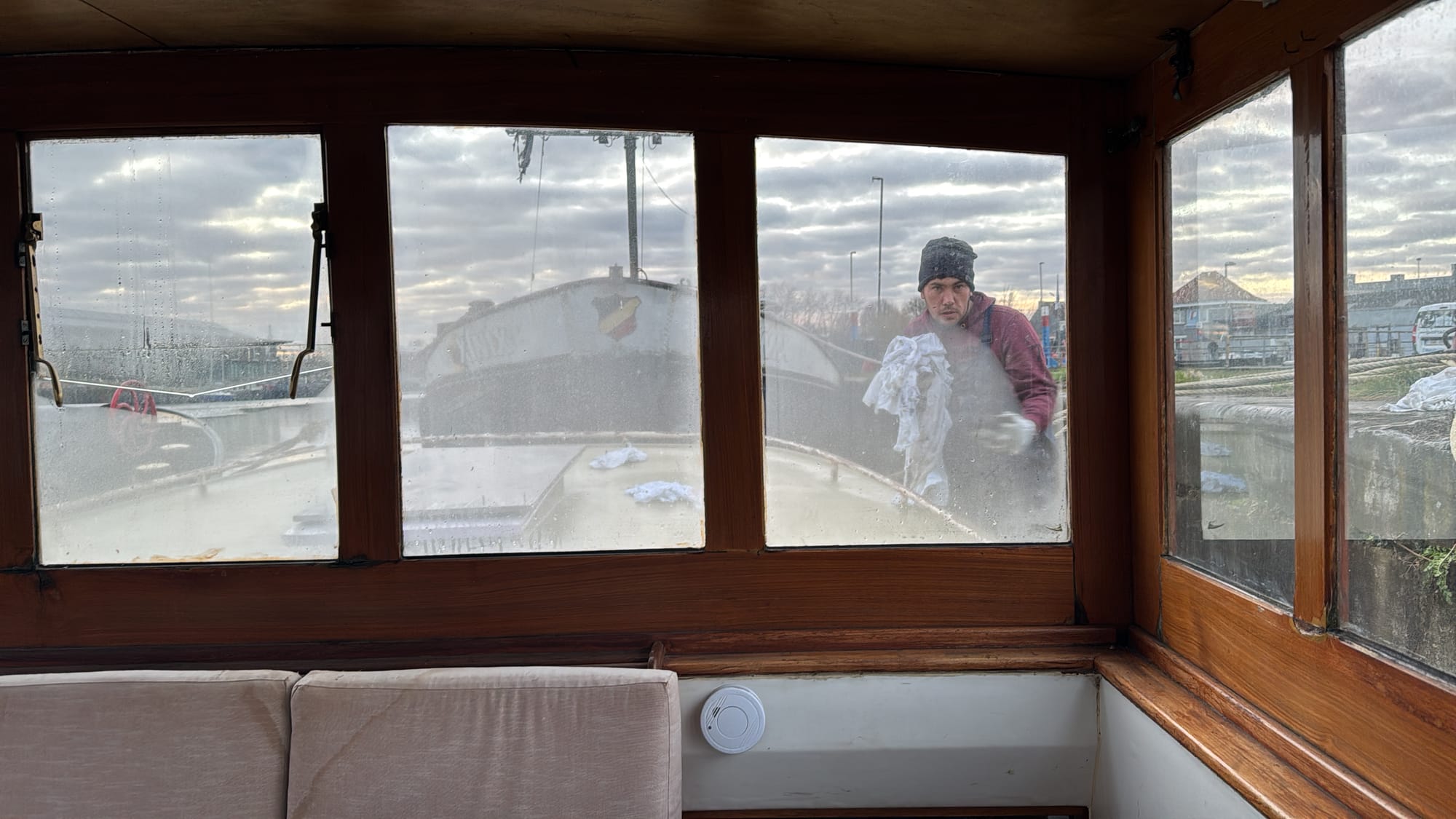
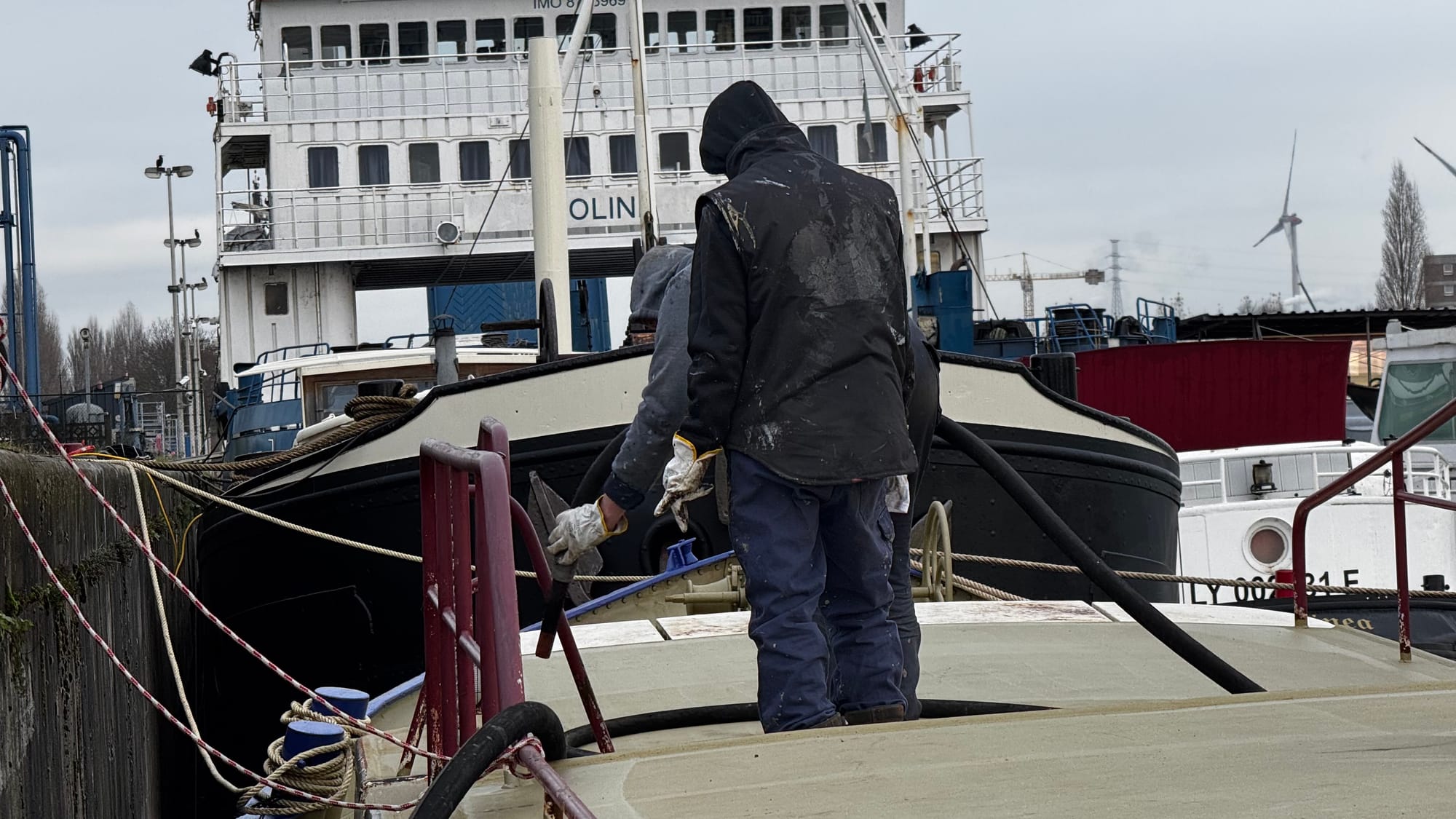
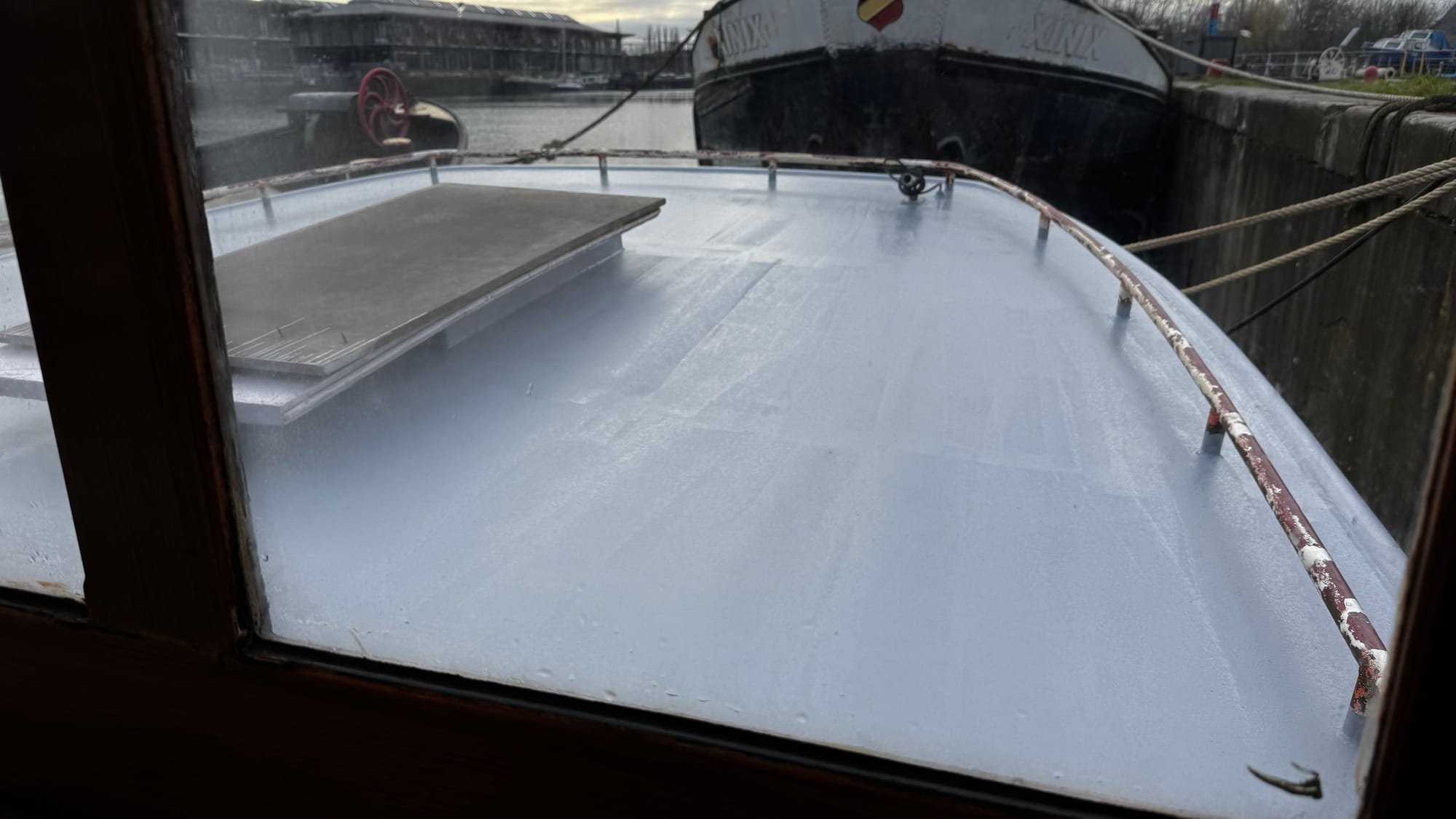

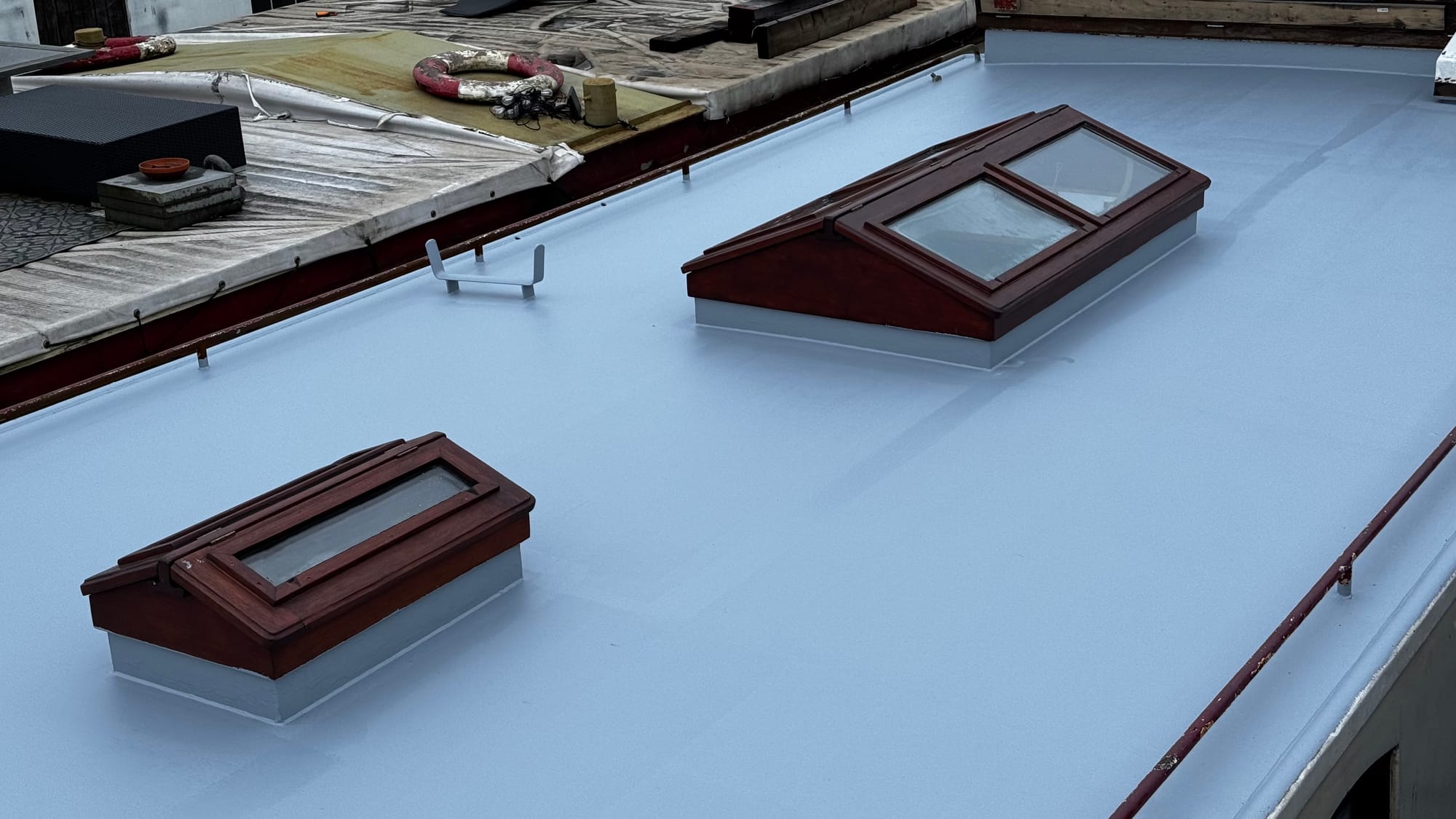
No more baby poo green, Delfine is now covered with a lovely grey primer. If we get lucky with weather, we MIGHT do a third coat this coming week.
I was woken by a phone call from Peter at 7:30 a.m. on Wednesday morning. "Where are you? We want to move off your furniture." I'd spoken to them about taking the old refrigerator, dishwasher, furniture, washer, and dryer, which Peter will pass on to others. They had time to do it first thing, so I scoffed my coffee, jumped on the bike, and rolled out there within 30 minutes.
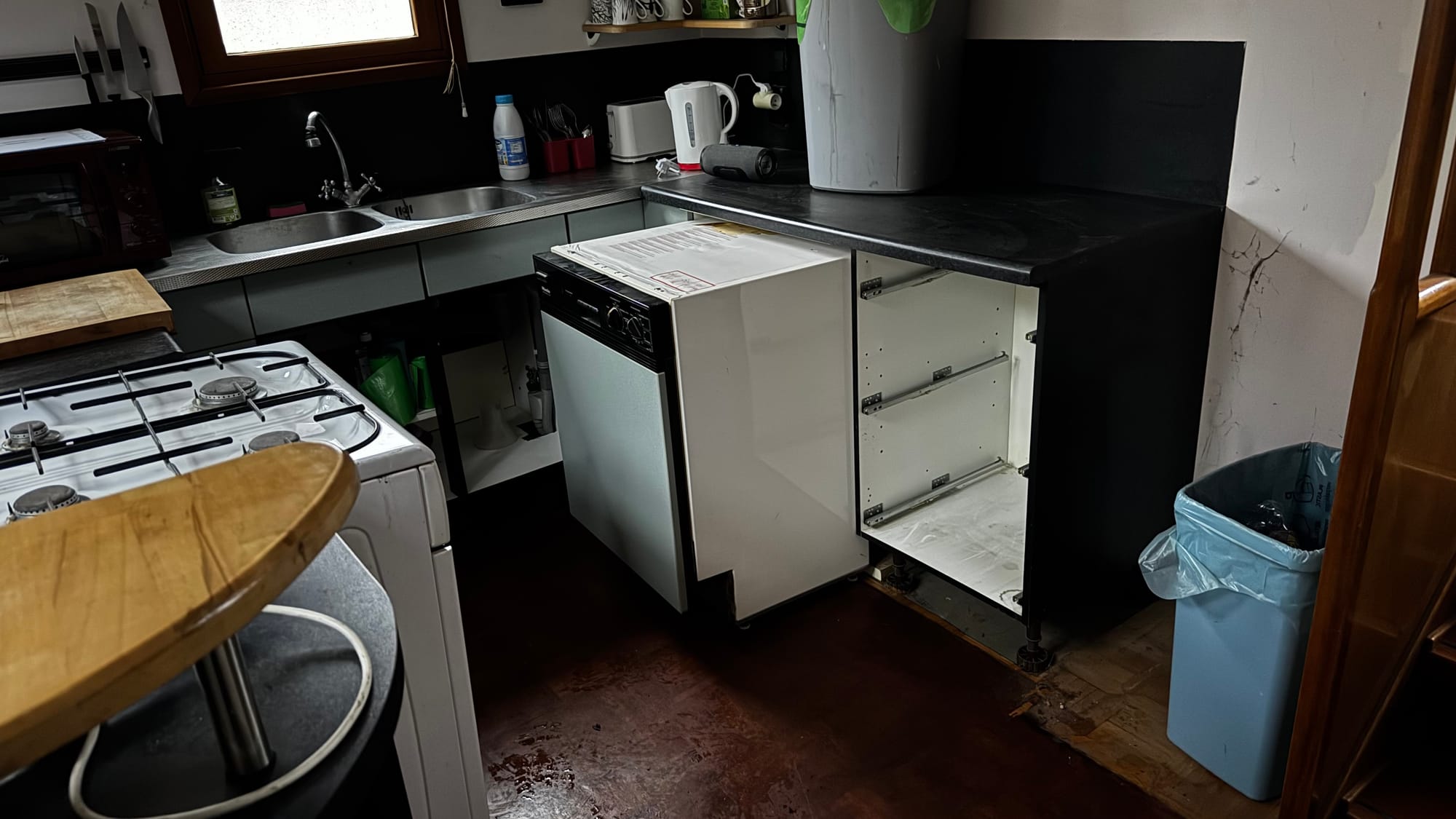
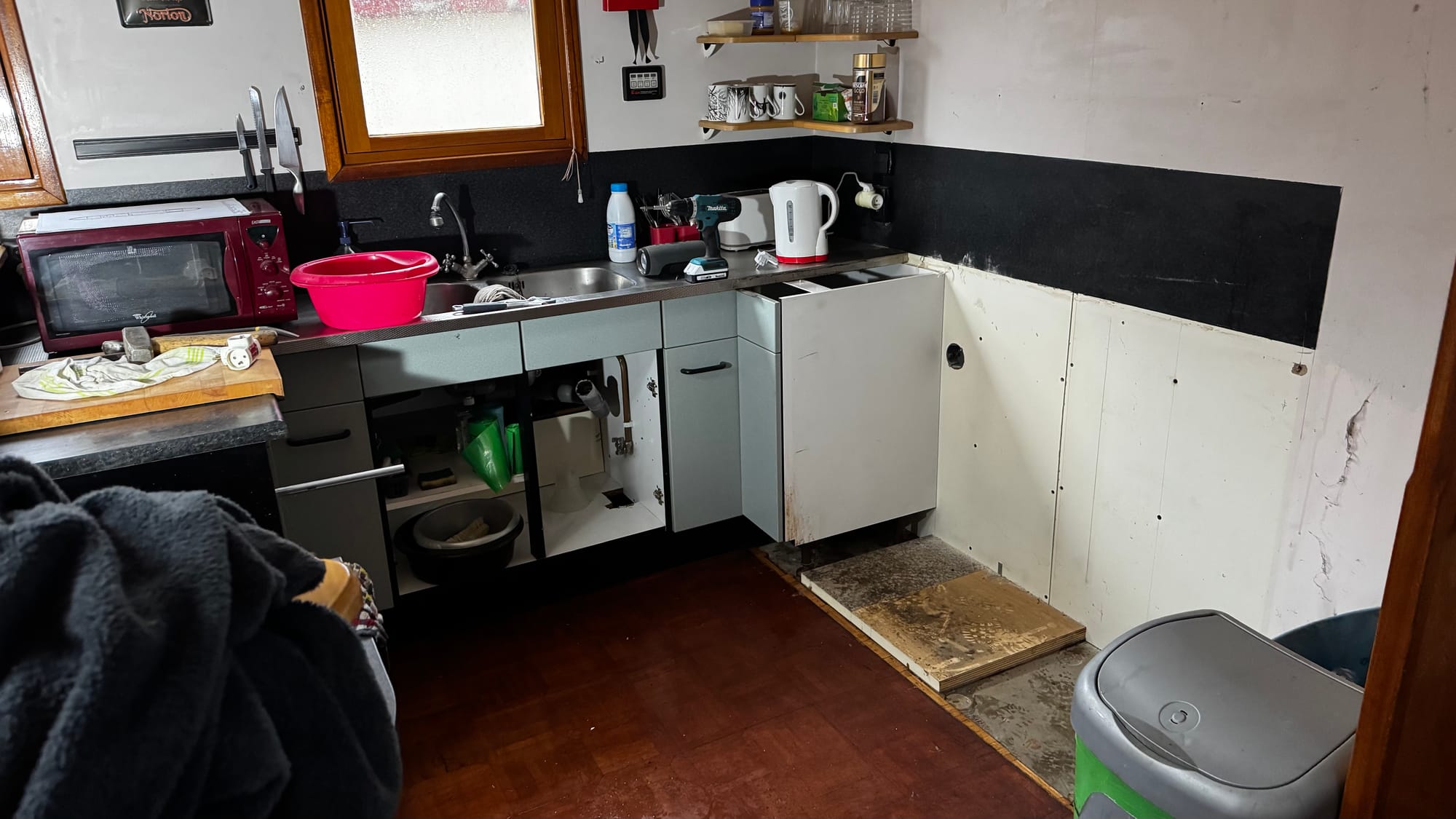
Kitchen appliances coming out.
Then the architects and the builders arrived. Between Martin, disconnecting things for Peters's crew and answering questions, it all started to feel a little overwhelming! At one point, we had about twelve people climbing all over Delfine.
Despite our agenda of work (repairs and demolition), there comes a point where you have to stop your own projects. With that many people and questions, the job becomes one of foreman. Instead of getting frustrated that I can get my "own" work done, it's more important to step back, keep out of the way, and keep the flow of decisions moving so others can do what they are there to achieve.
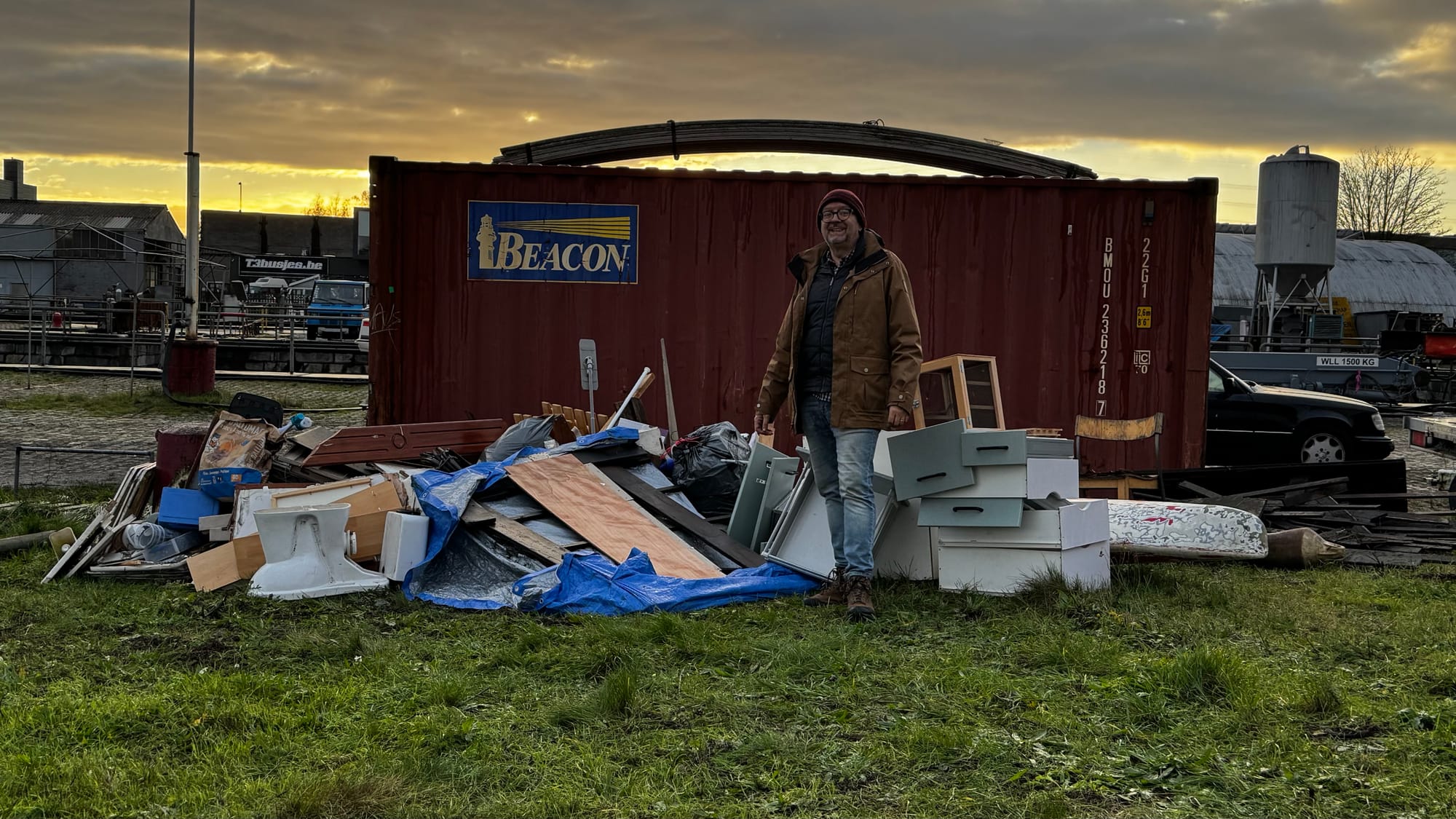
With all the furniture gone, the kitchen half demolished, floors up, and the rubbish moved off, Delfine is becoming very sparse inside. She's a different-looking boat at the moment.
By the end of Friday, Martin had replaced the central power systems, and we moved to putting things back together. After being dark for three days, we again have shore power on Delfine. We still need the 24v system and a myriad of other things, but progress is being made.
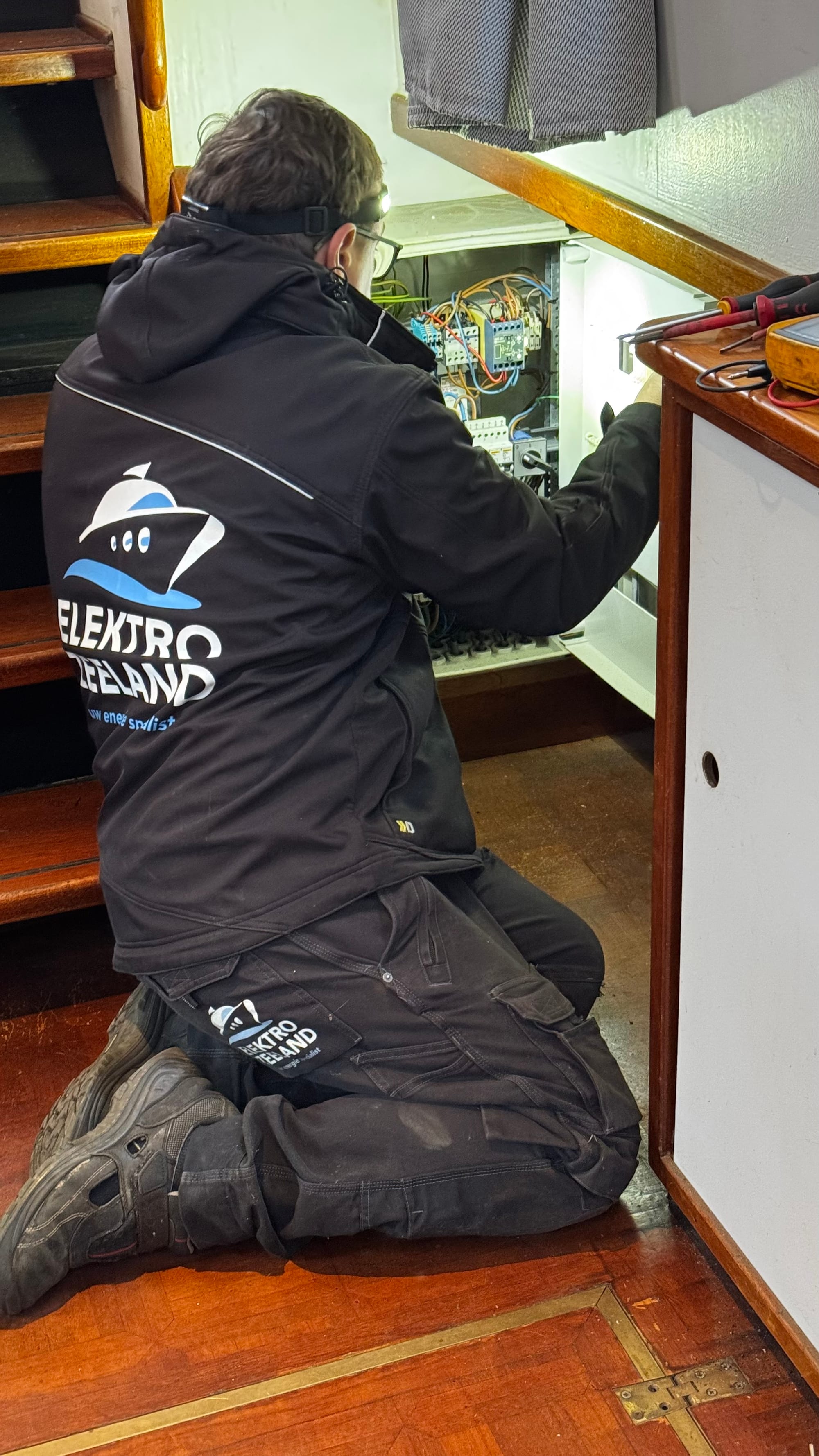
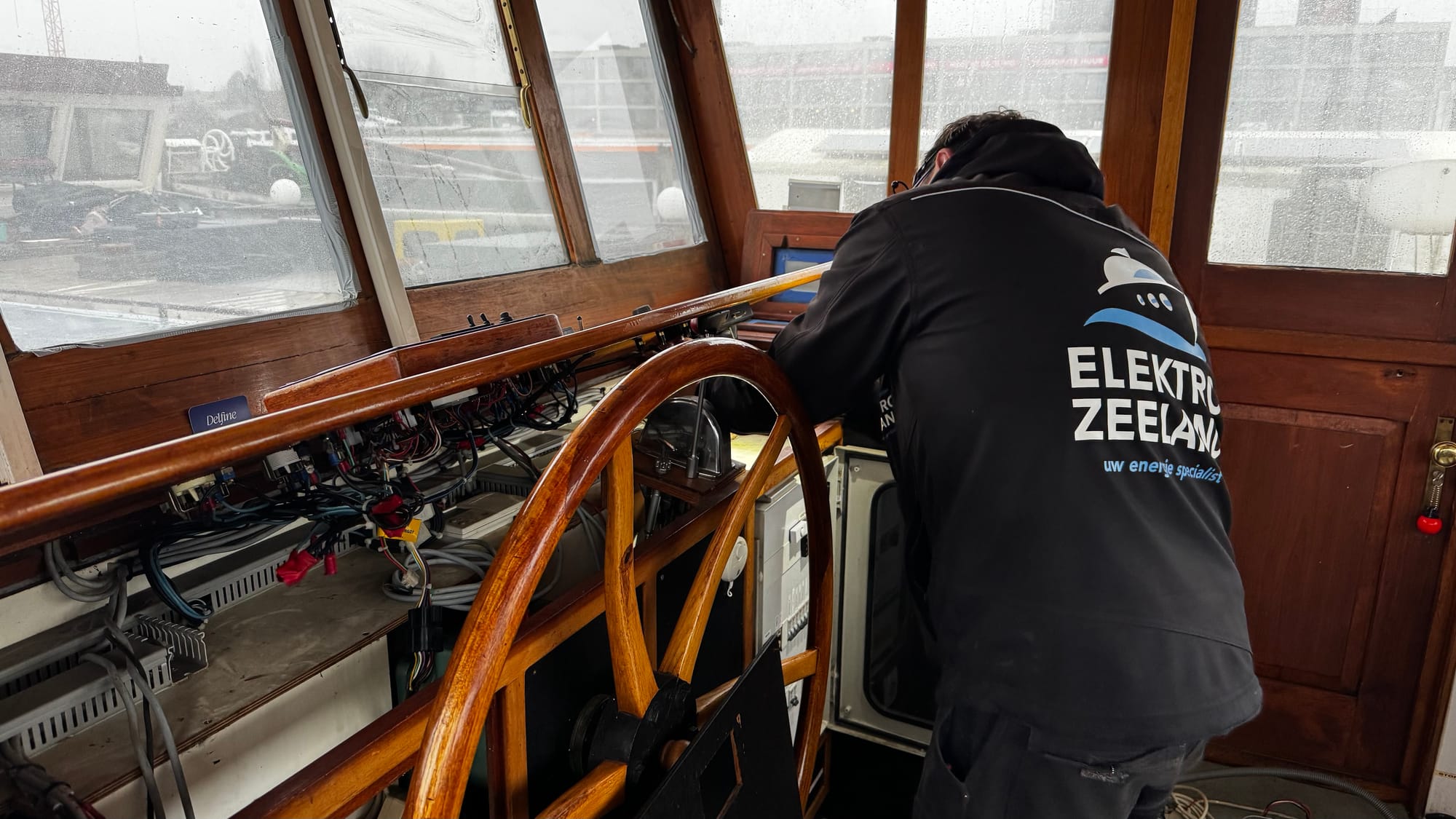
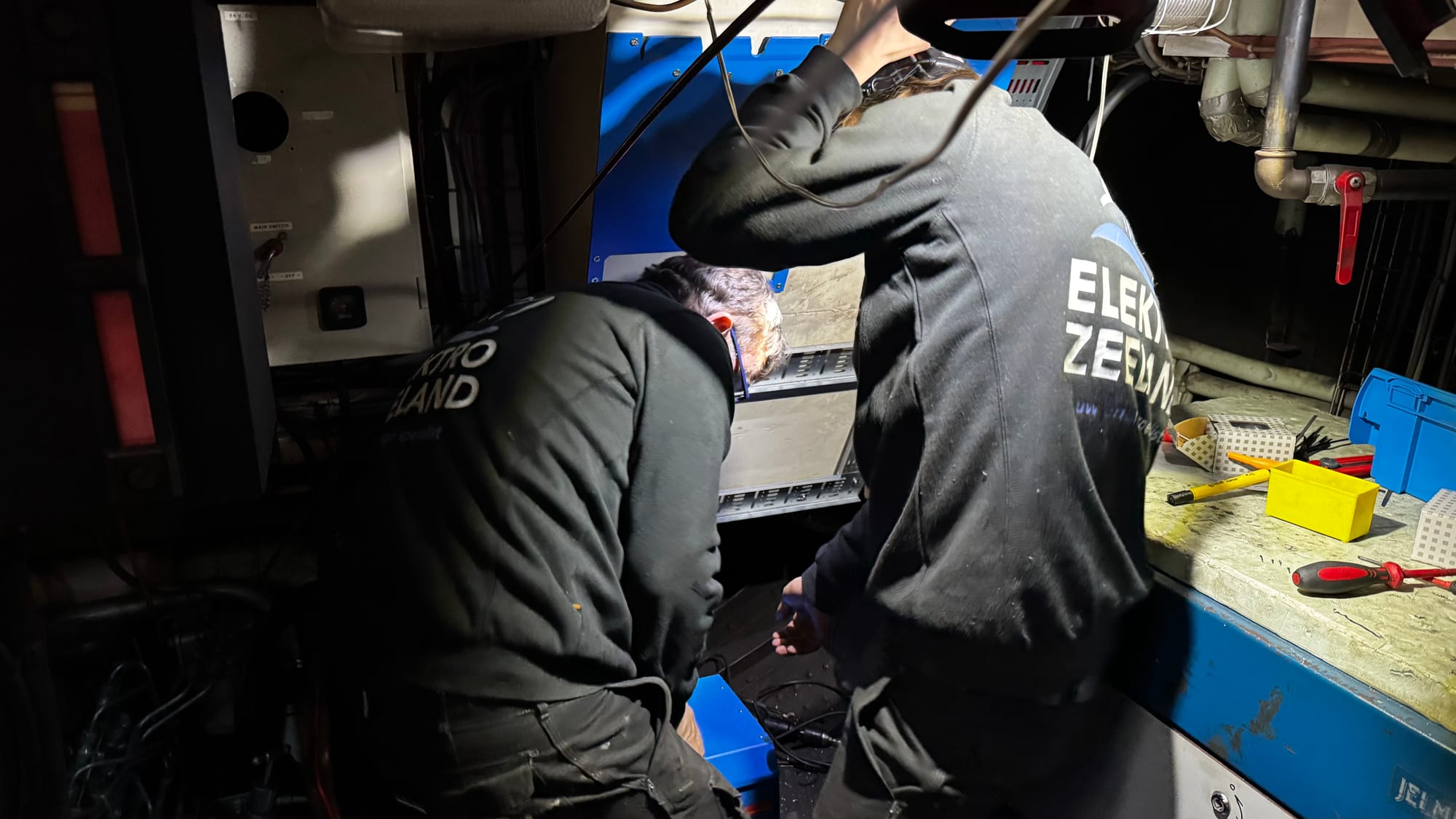
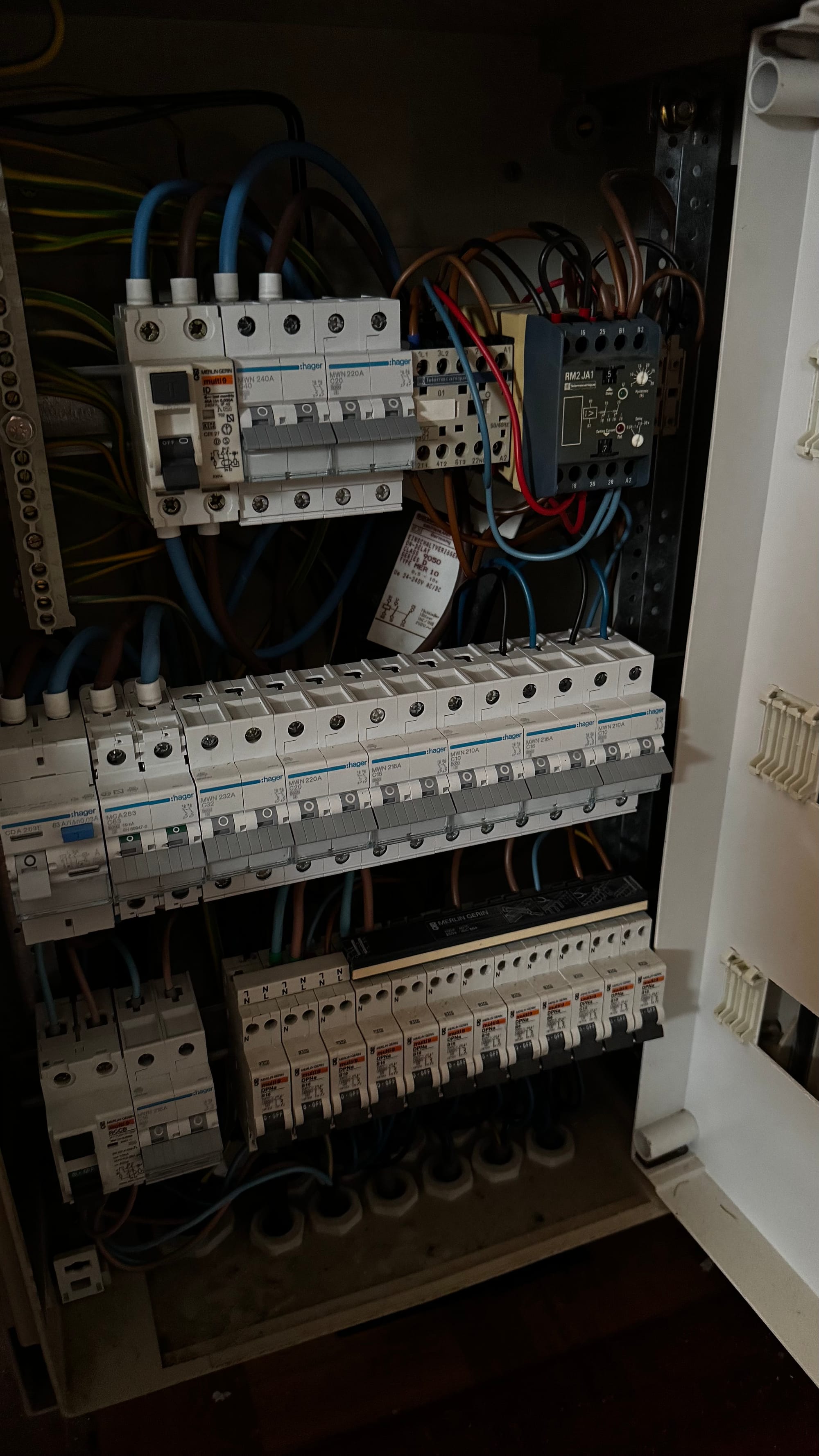
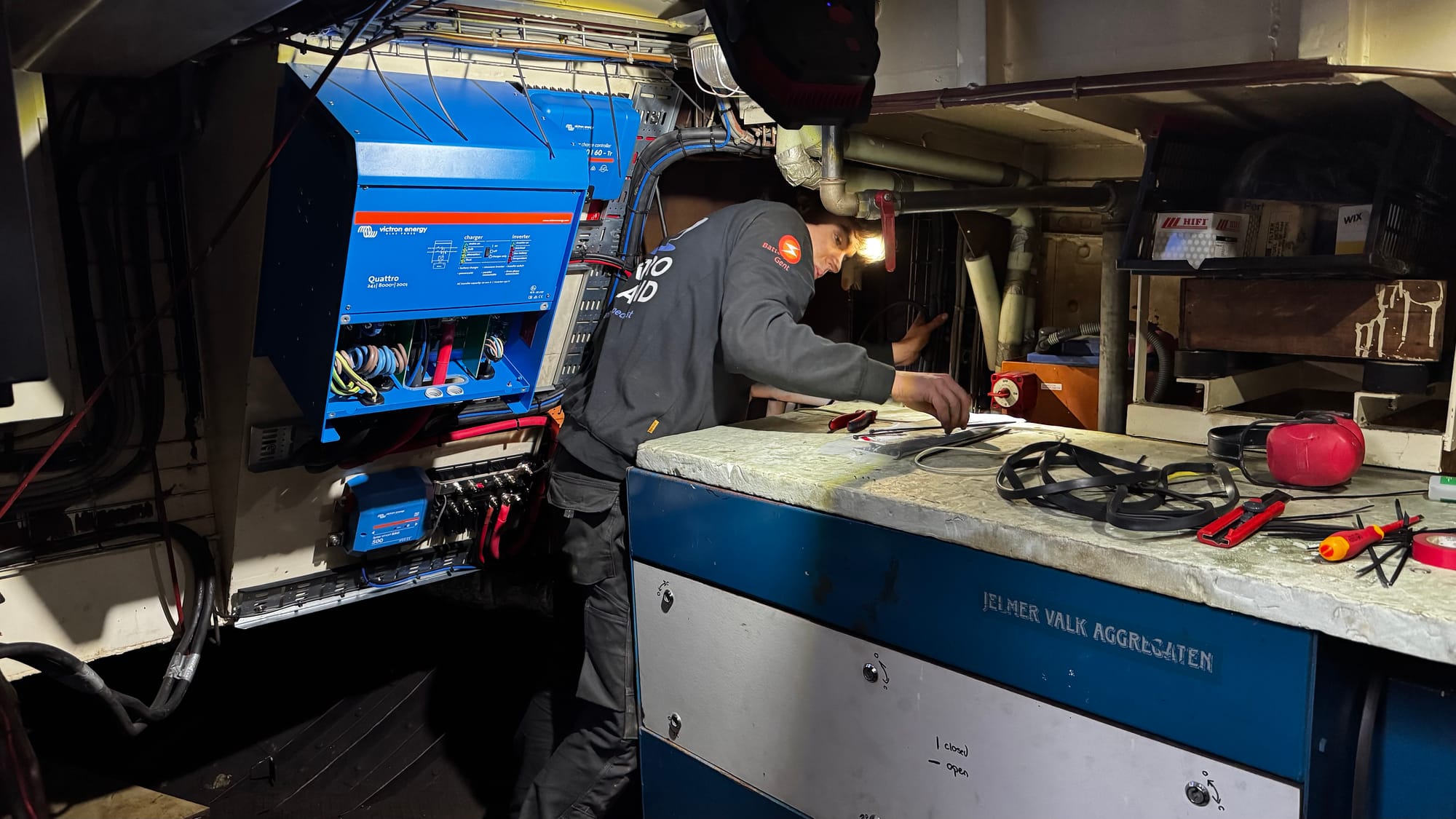
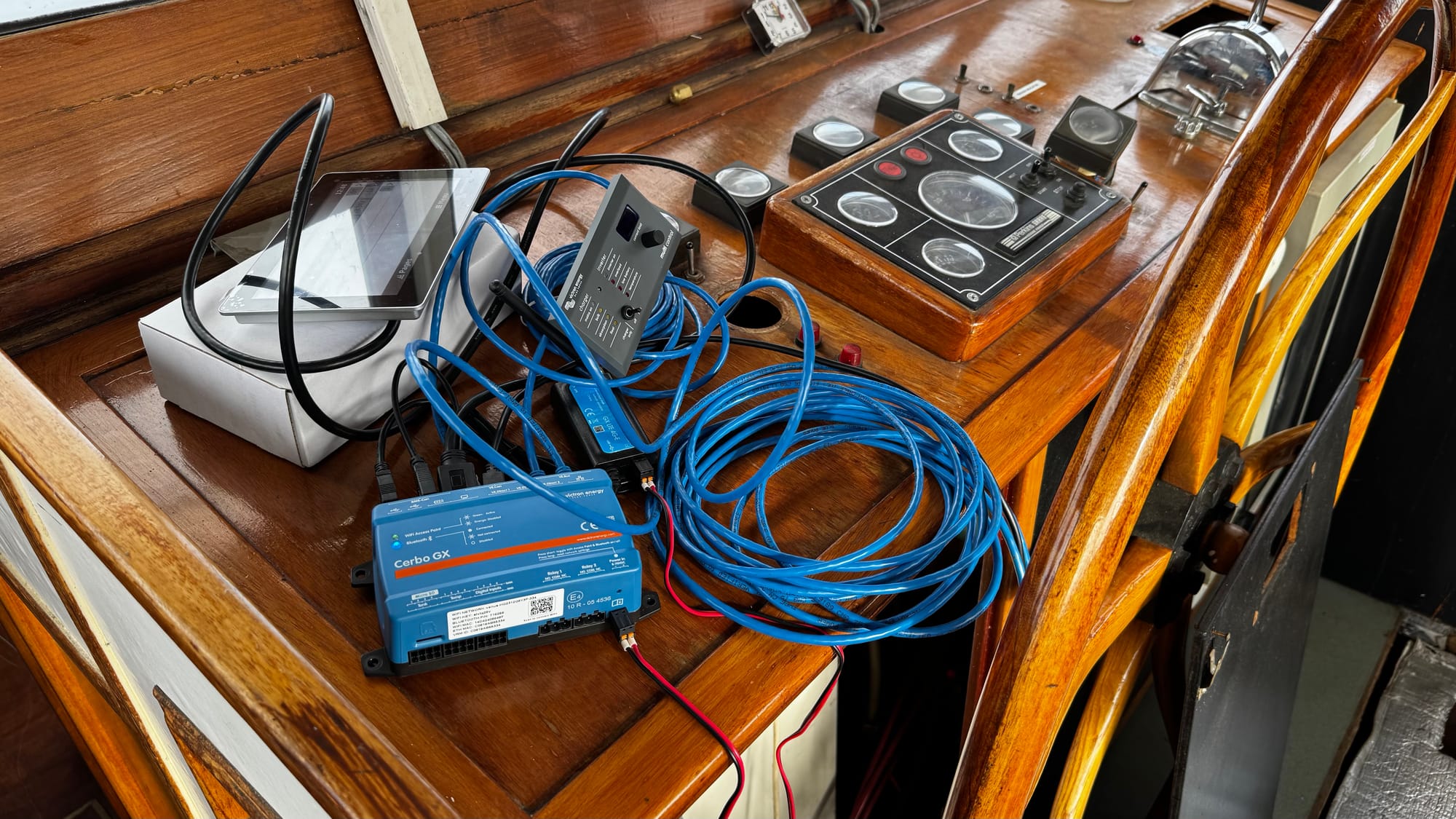
Work on the electrical system.
We had a visit from a water purification company to see if we could design something for the blackwater waste (sewerage). They have a bacterial system that cleans everything up enough to go into the canal, but it needs room. The forepeak might do the trick, but we're not sure. They are returning on Wednesday this week for more detailed measurements–all of which is to provide a quote for something we're unlikely to be able to afford at the moment, but we need to find out.
As we tear out things we don't need, it's easier to visualise what needs to happen to complete the work. The wheelhouse has been very uncertain in my mind for a long time, but yesterday, it all started to click–I can see what needs to happen to complete it. Yes, it's a lot of work, but logically, I know the path forward.
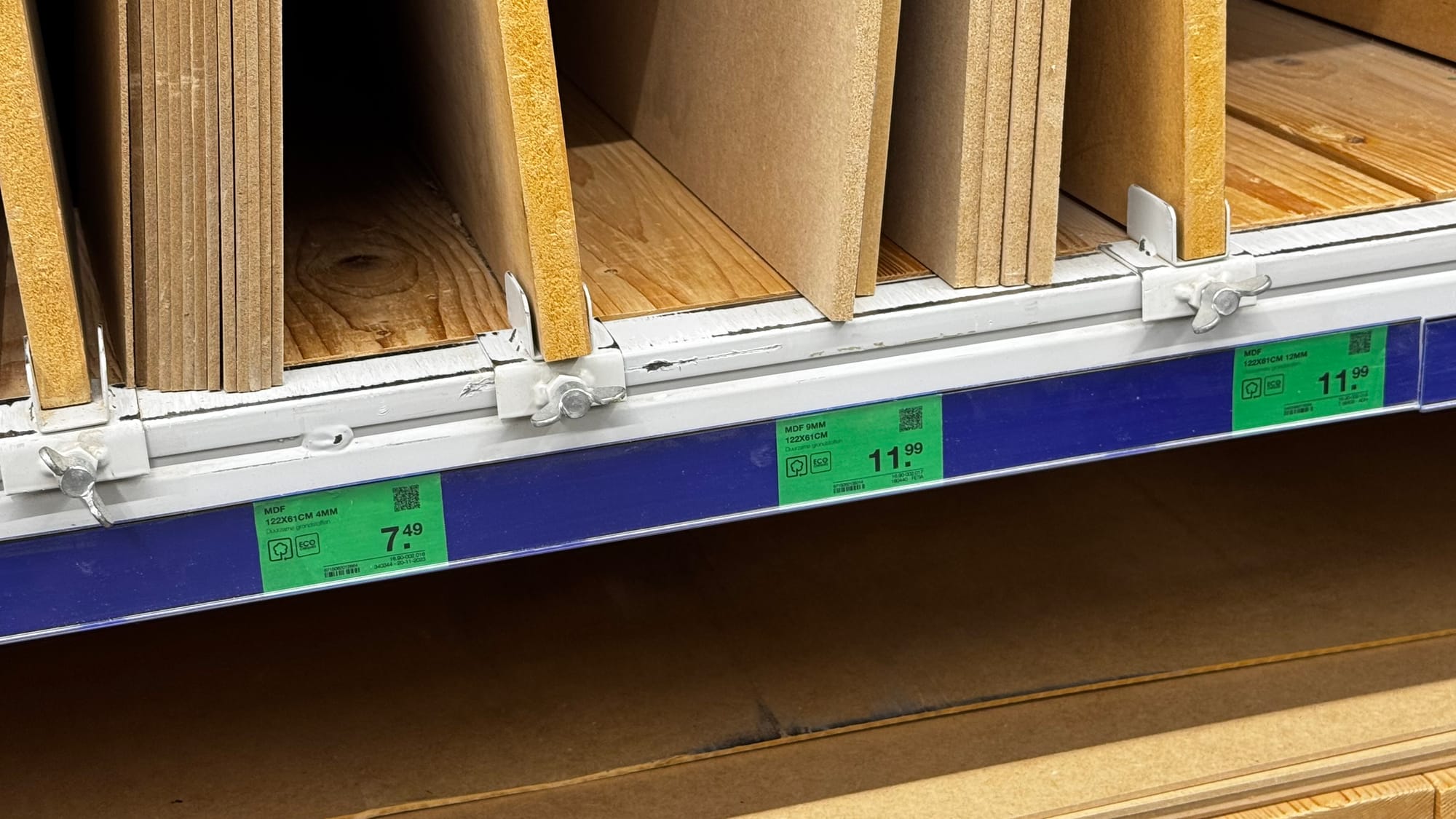
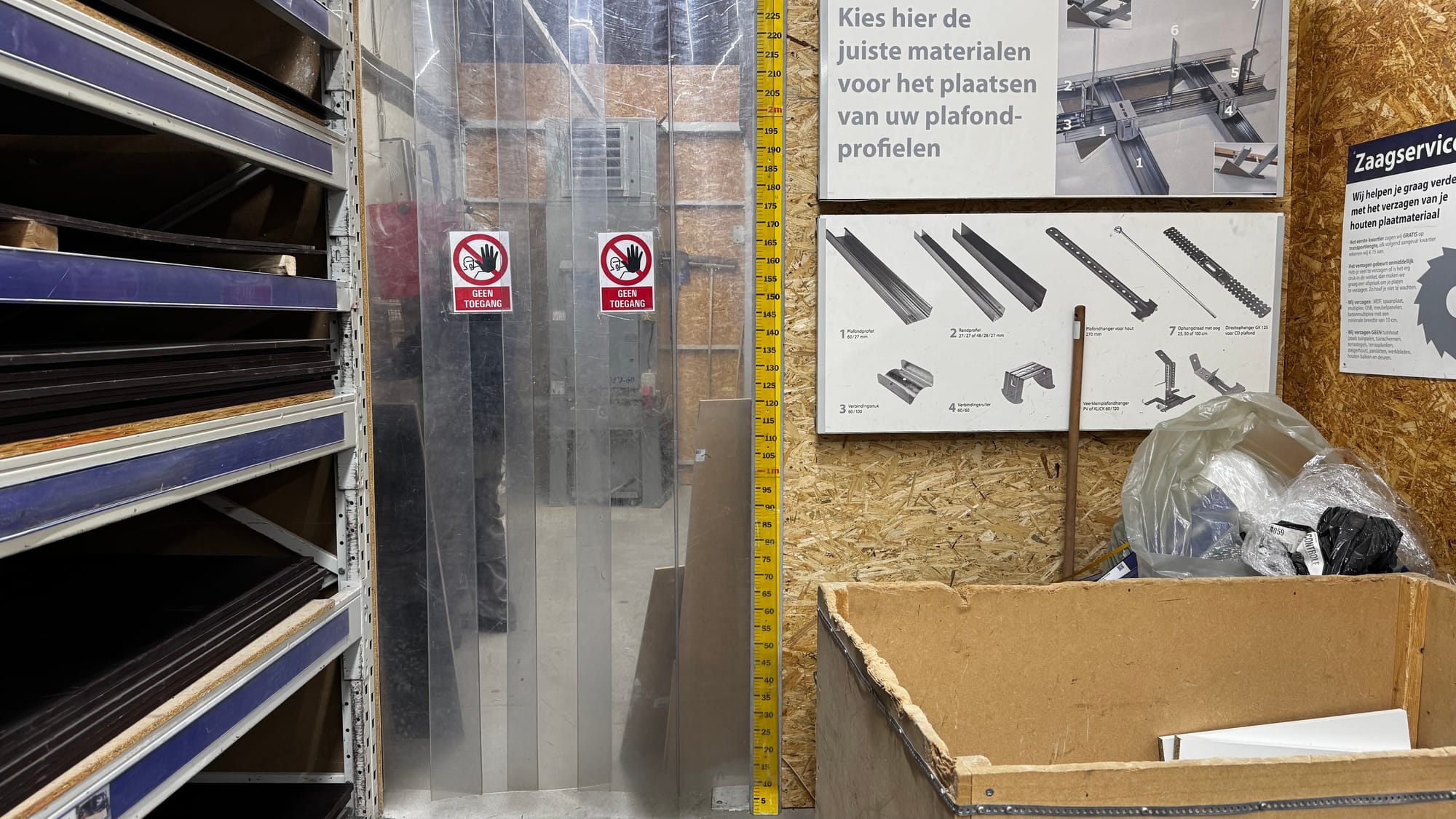
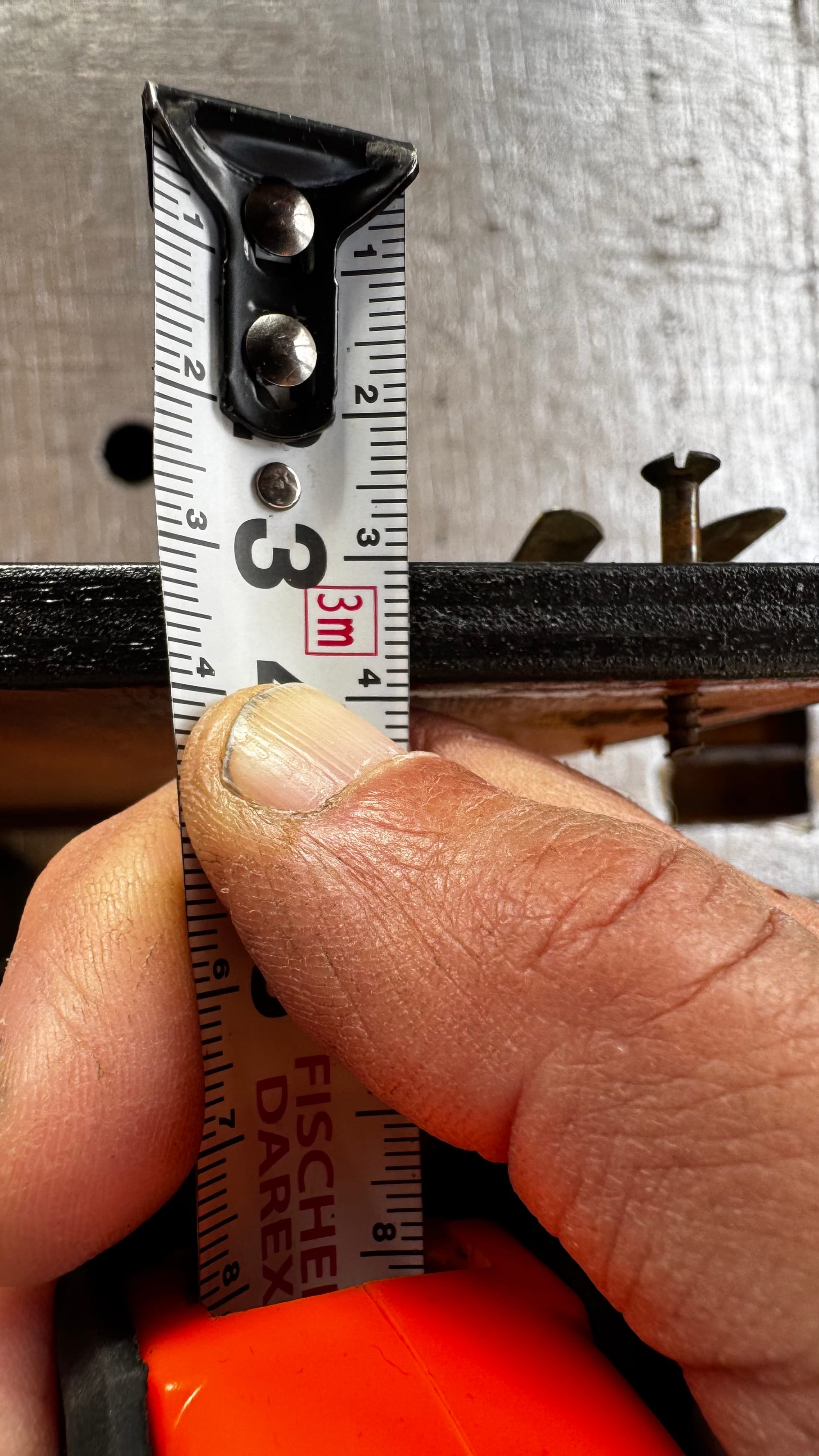
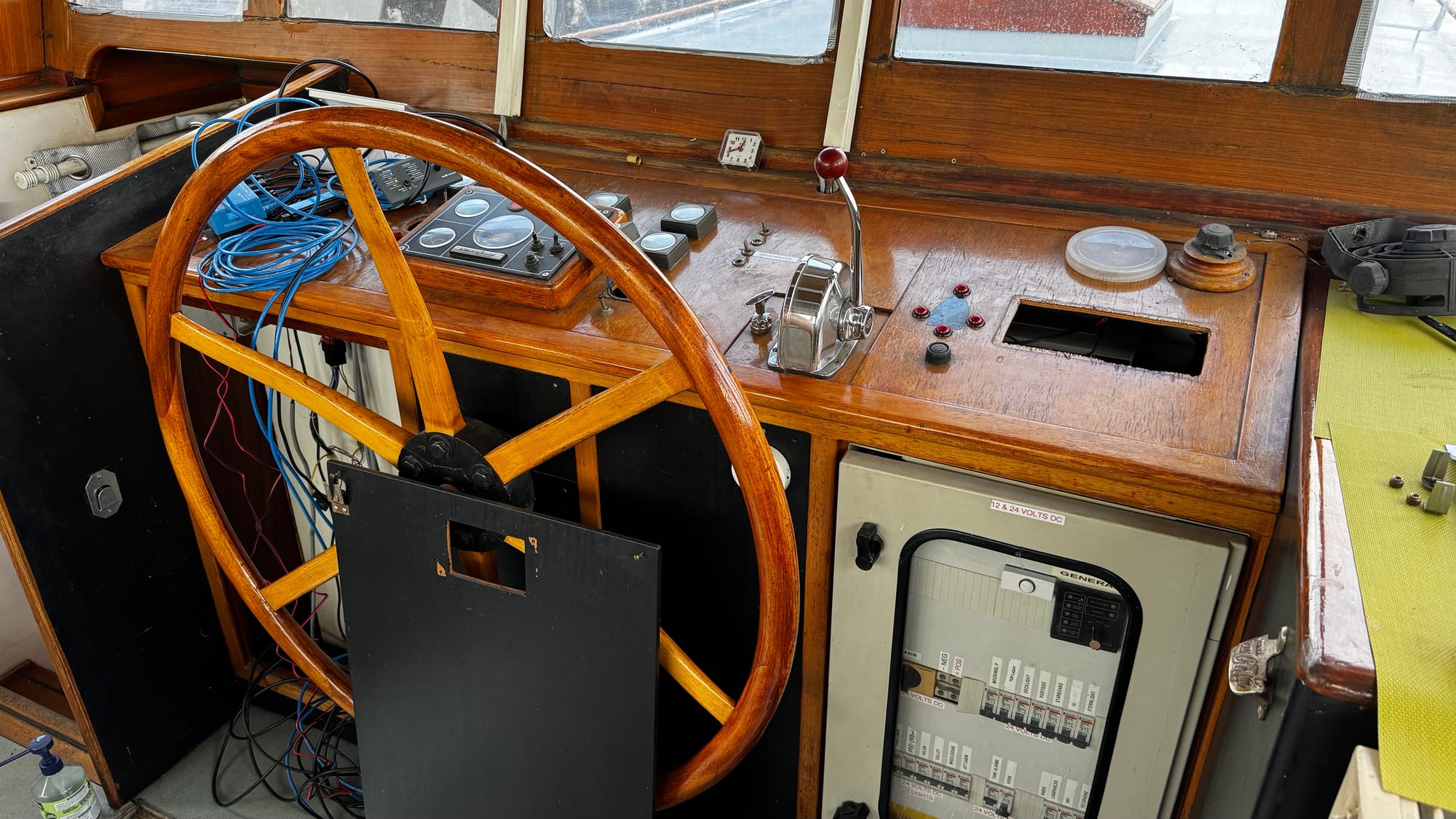
Working on the wheelhouse console. New MDF panels cut to size, we'll paint those up a very smart black and replace them all. No more holes until we create new ones anyway.
The same goes for the staircase and hatch. It's all been a mystery. We know bits of it, but as things settled on Thursday, I could start sketching and thinking on paper. I now have a design that should work and two people who could build it.
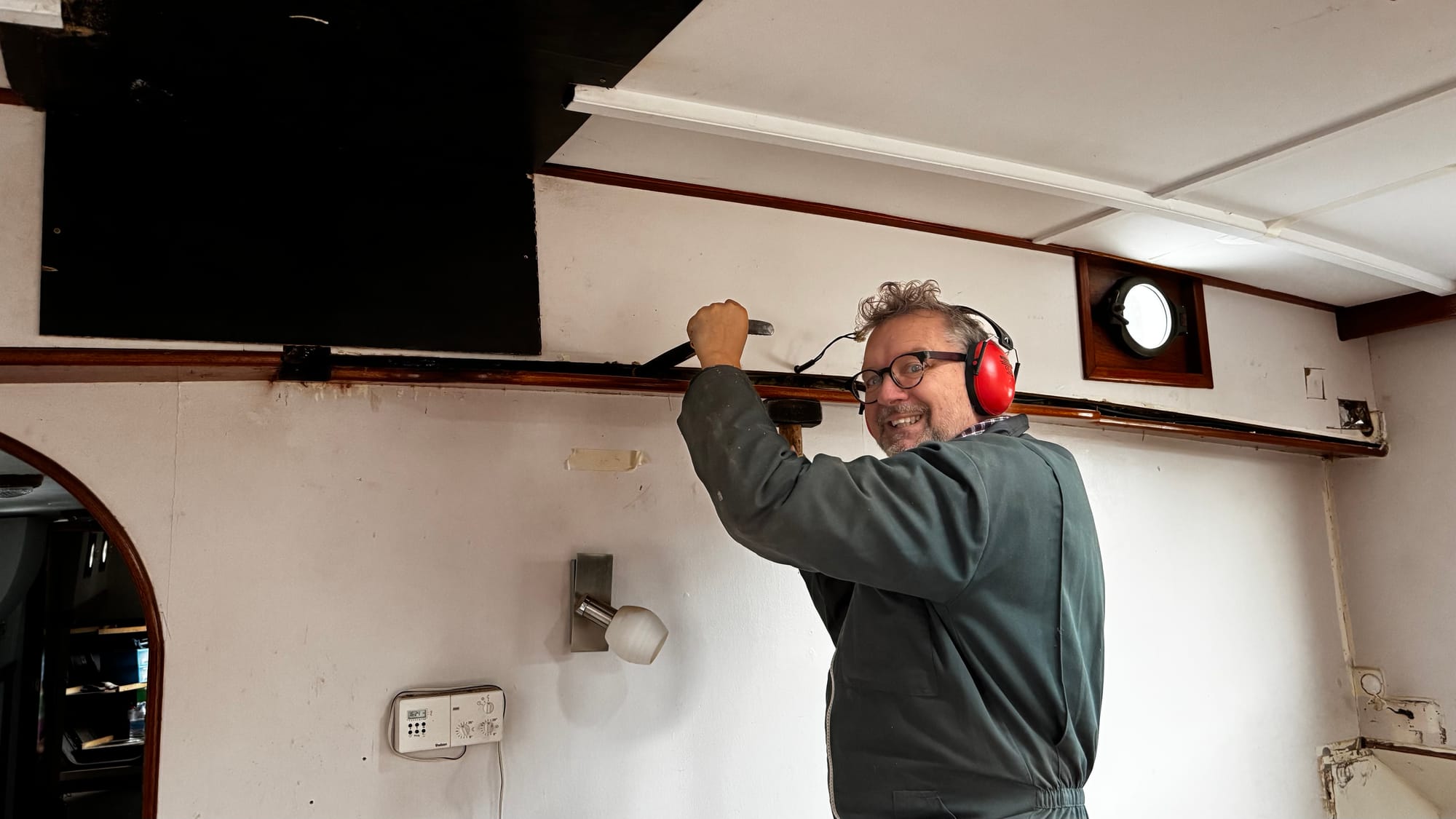
The scary part is that the clearer things become, the more obvious it is that there's a lot of work to go. It's good to quantify it, but sometimes that fuzzy "it's kind of like that" comes into sharp focus, and you realise there are a few more steps to climb up the mountain.
We're not complaining. It's an exciting project and something I am personally proud of. I loved a comment from another friend this week, "How lucky Delfine is to have someone restore her and bring her back to life." I feel that way. I do! It's satisfying to work with a piece of heritage and know that the work we're doing now will keep her on the water and floating for another thirty years–at which point she'll be a 150-year-old ship. That's a fantastic legacy.
As they say here in Gent, ‘Nie neute en nie pleuje’. Don’t whine, don’t give up. We're fortunate to be able to take this project on, but at the same time, we've always been honest about the challenges we're facing. It's not an easy task, and this week has been full of activity and a realisation that there's no longer any going back.
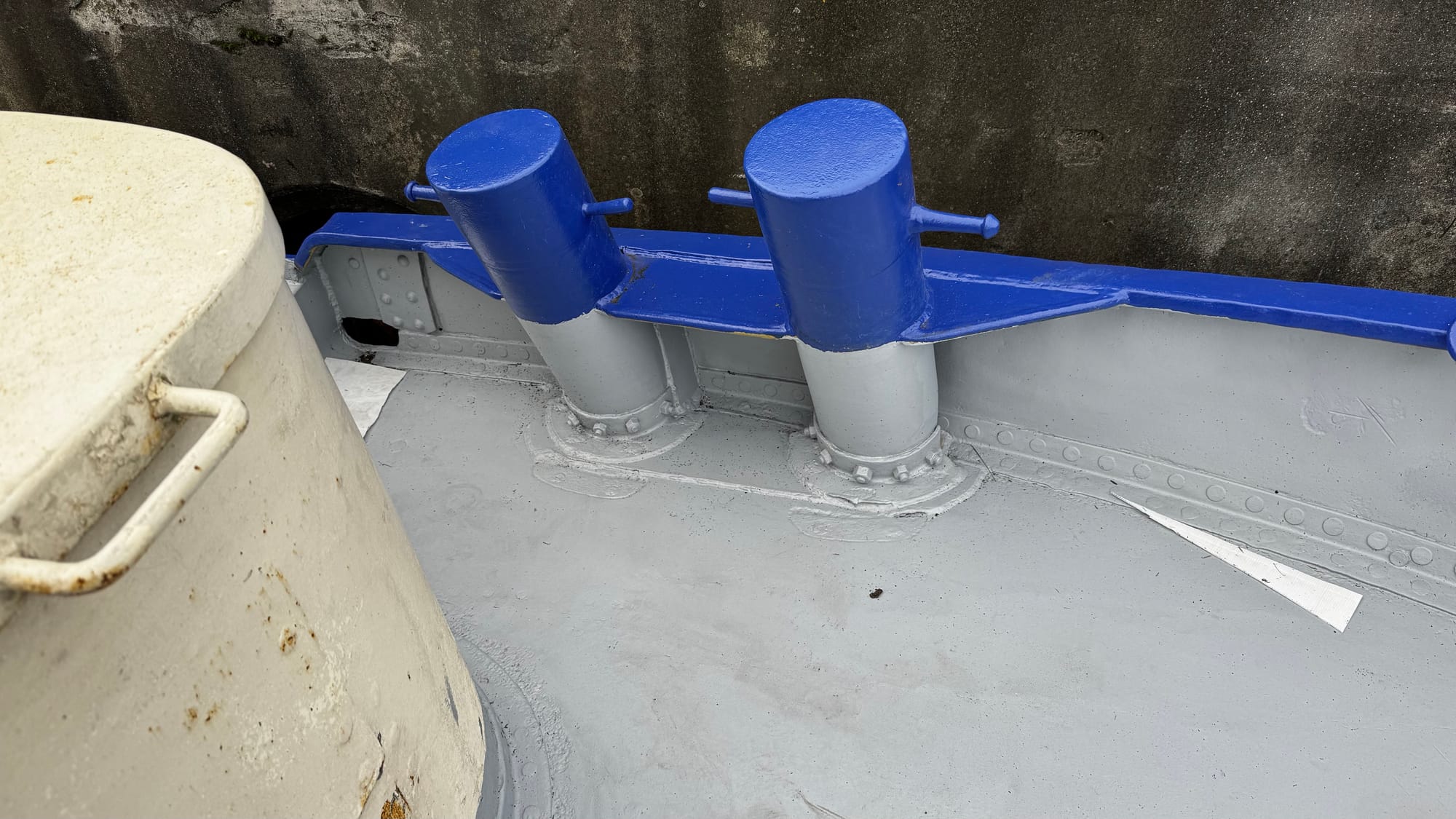
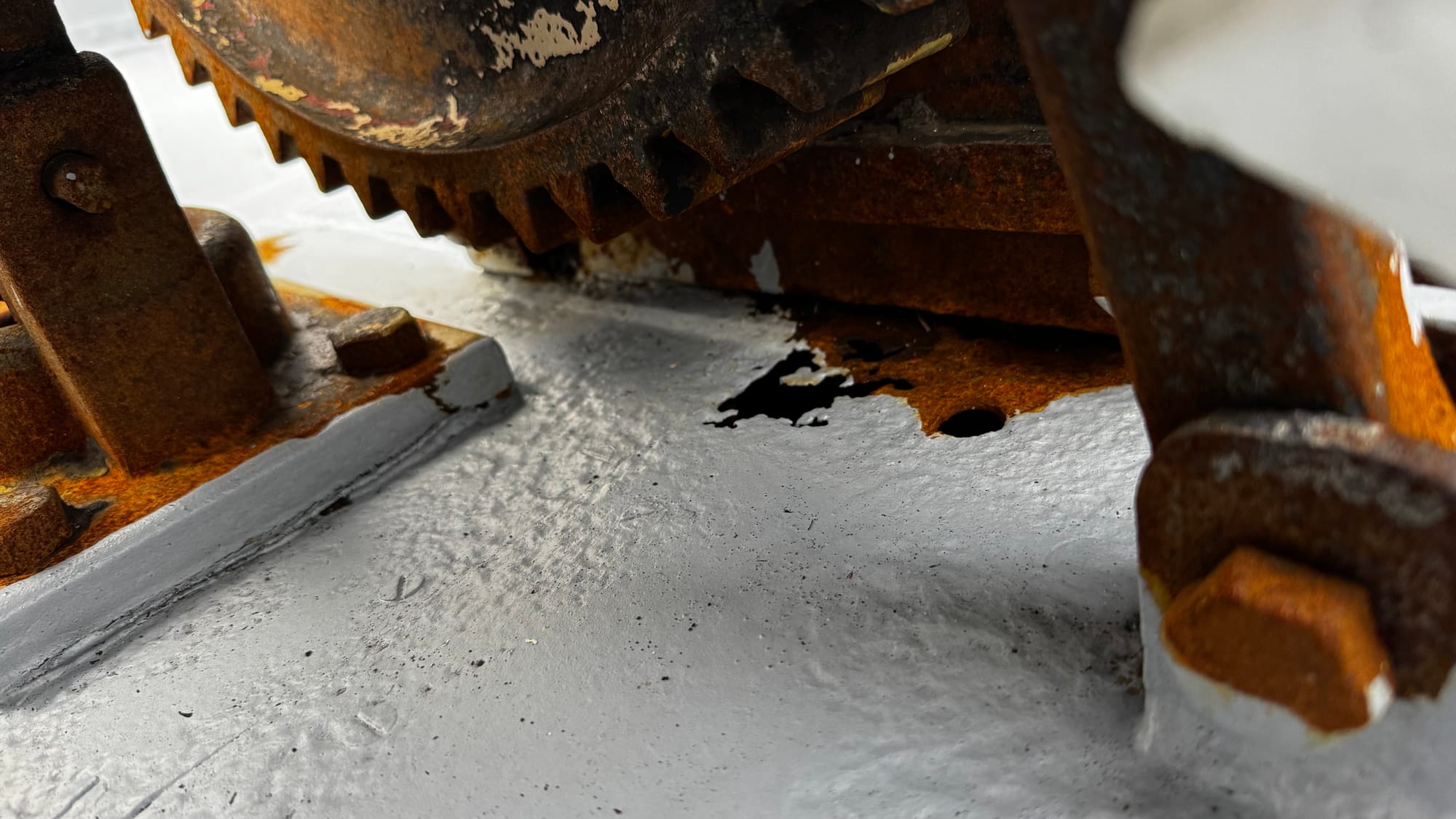
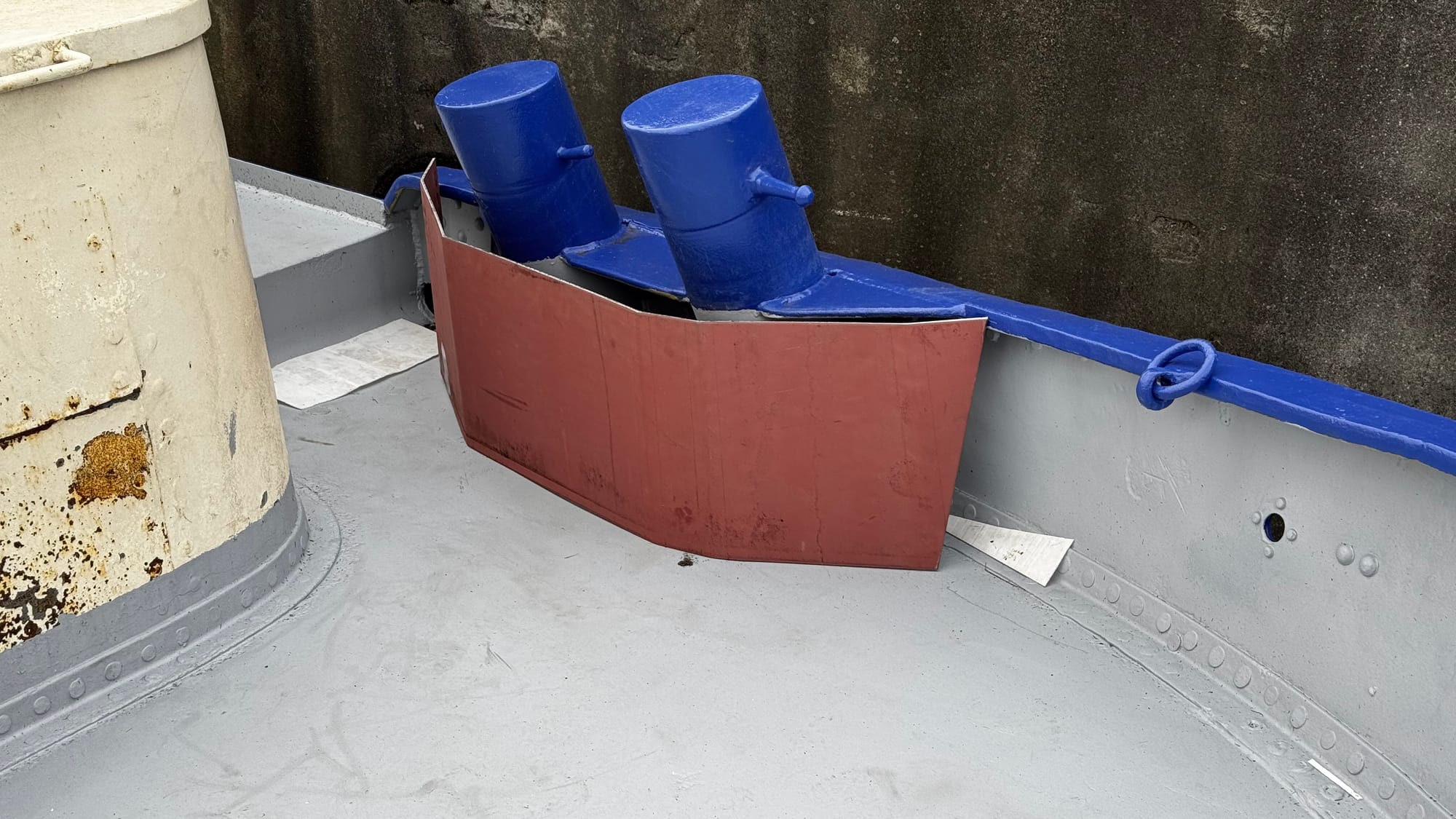
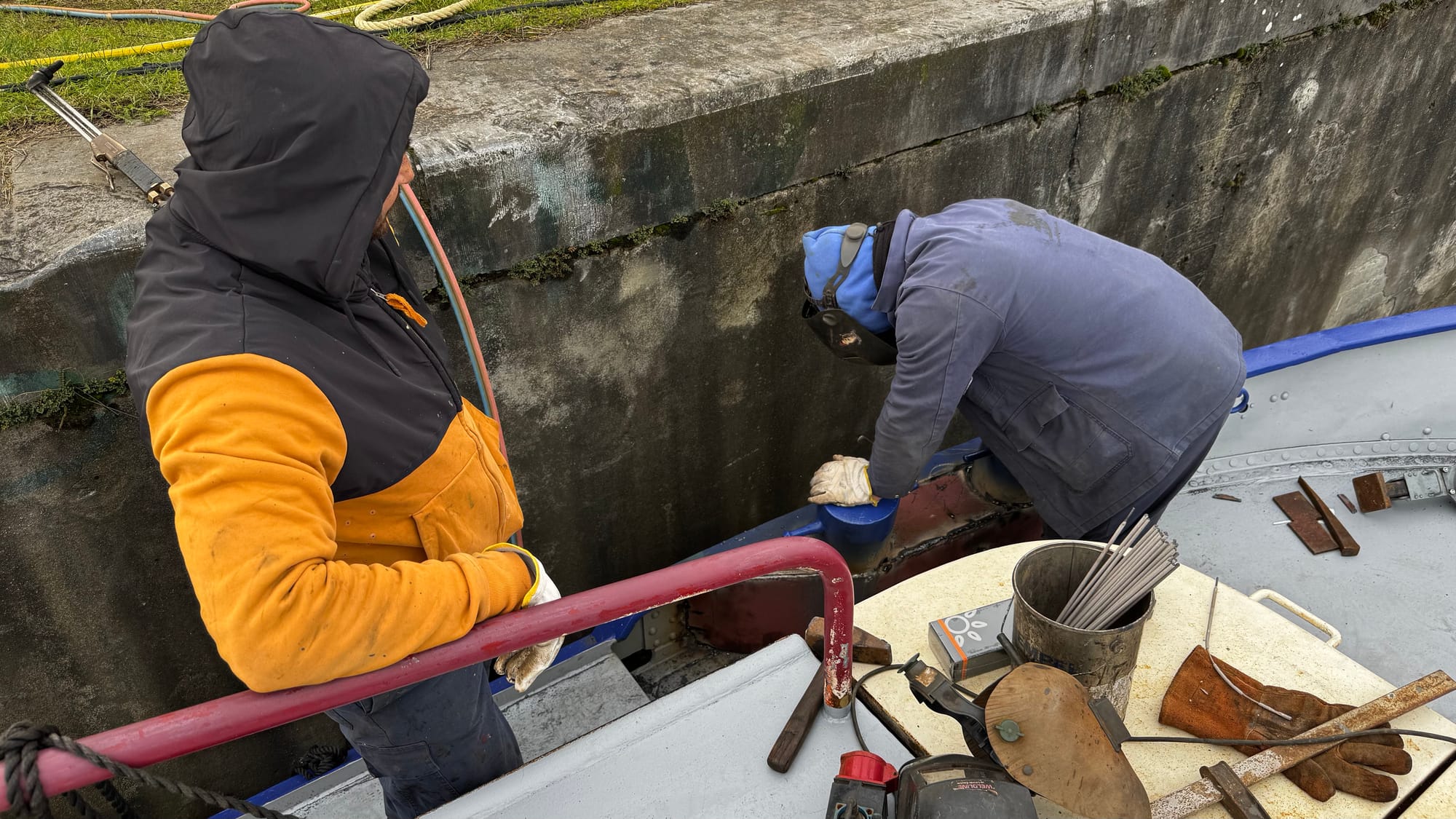
The foredeck is the last place that needs welding repairs. The bollards have rust holes behind them, so we're boxing those in fully (much stronger, and no more water or dirt can get trapped). The rust hole under the windlass needs to be over-plated.
Which brings us to this coming week. The first round of the electrical upgrades will be completed (the solar panels will happen next year–which, given the amount of sun we get at the moment, is no big deal 🤣), the skip will be loaded and filled, and the welding of the foredeck will be completed. We hope to put Delfine into a brief winter hibernation by Thursday while we take a break for a couple of weeks. I expect to complete one more blog entry this year (probably on Friday), and then, we're off for a two-week break until the New Year.
Until next time,
Tim and Karina
